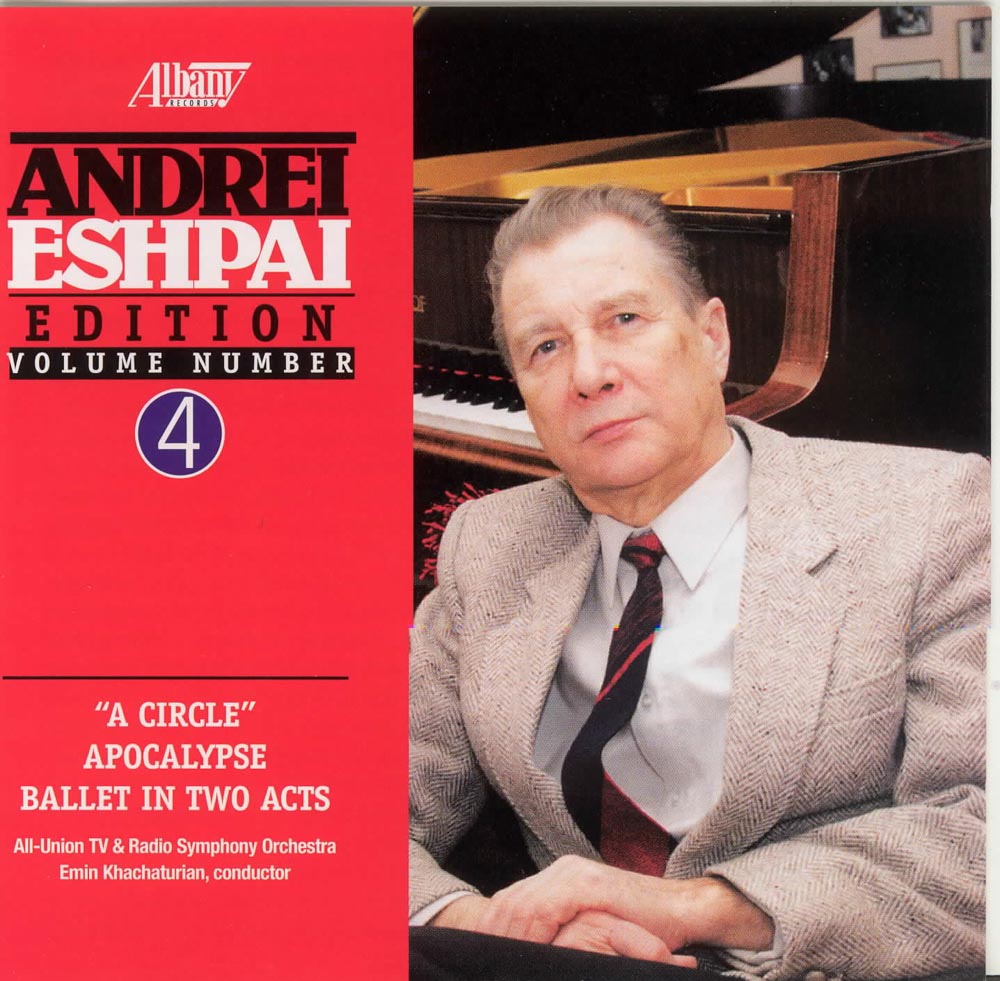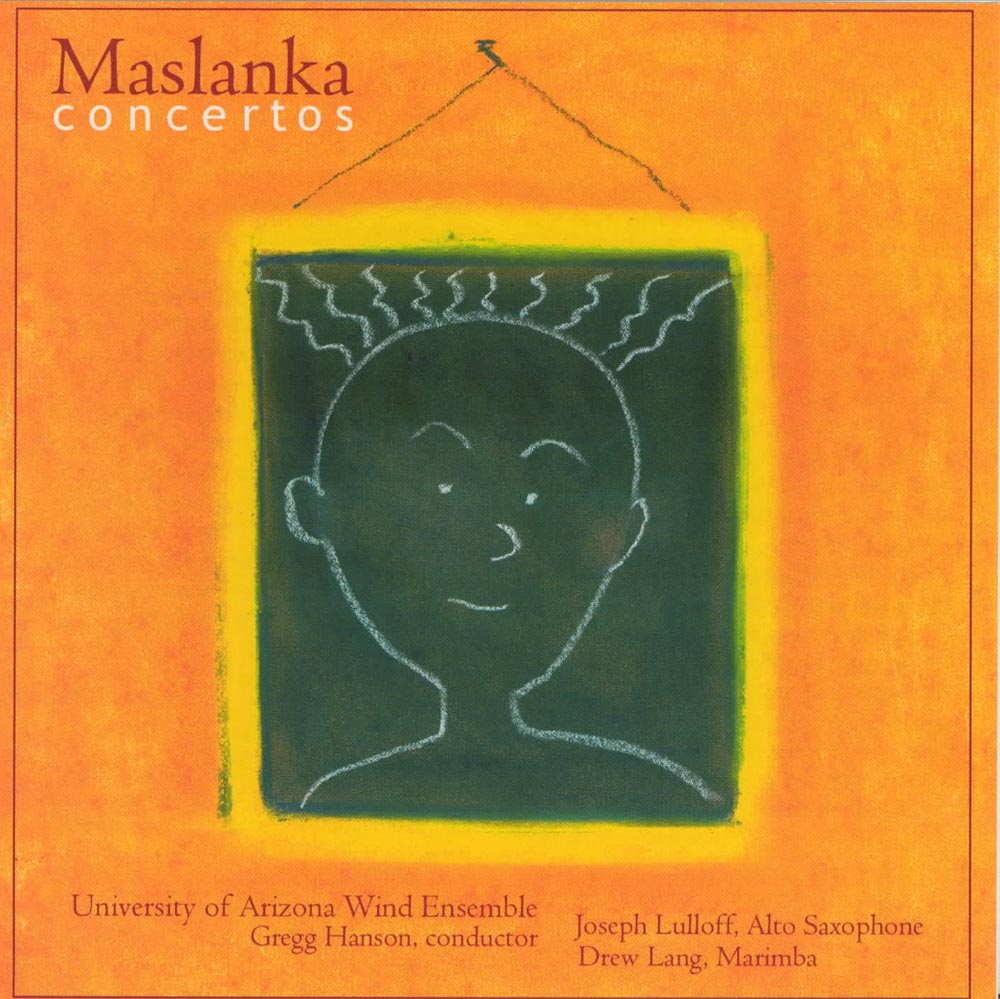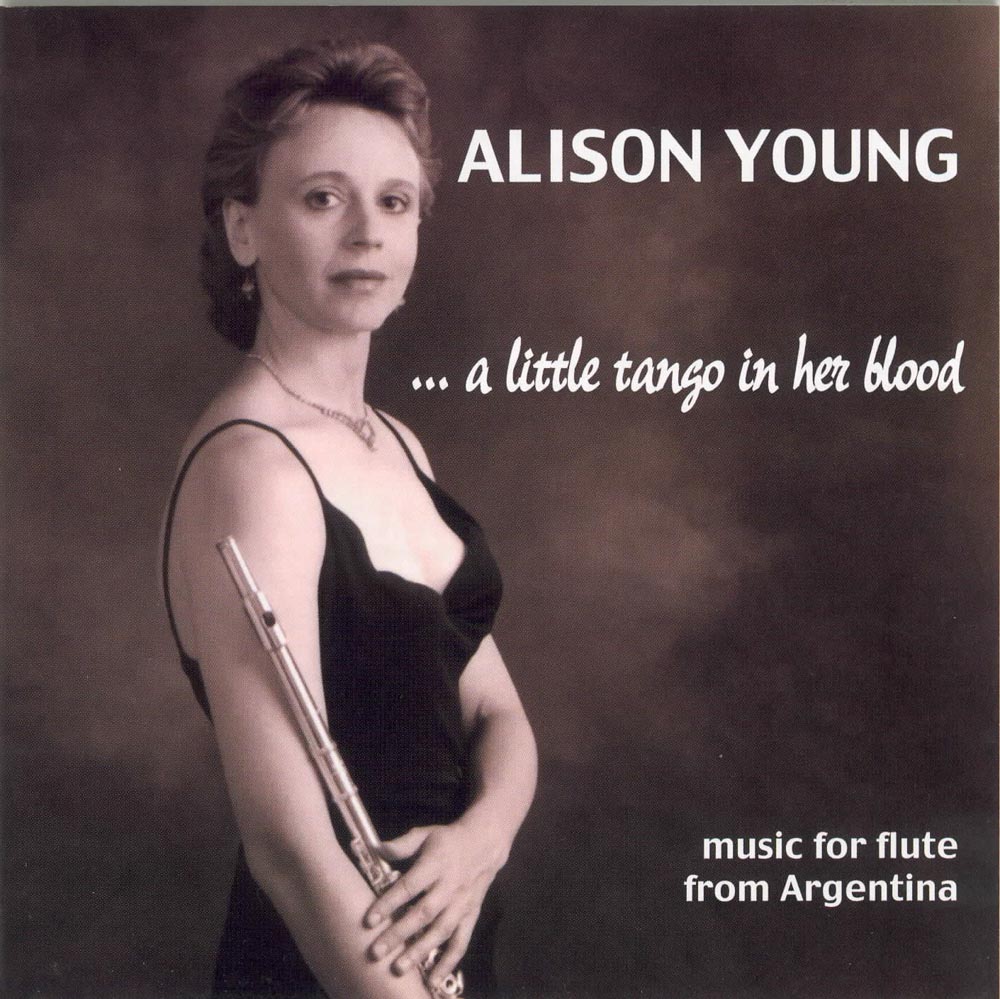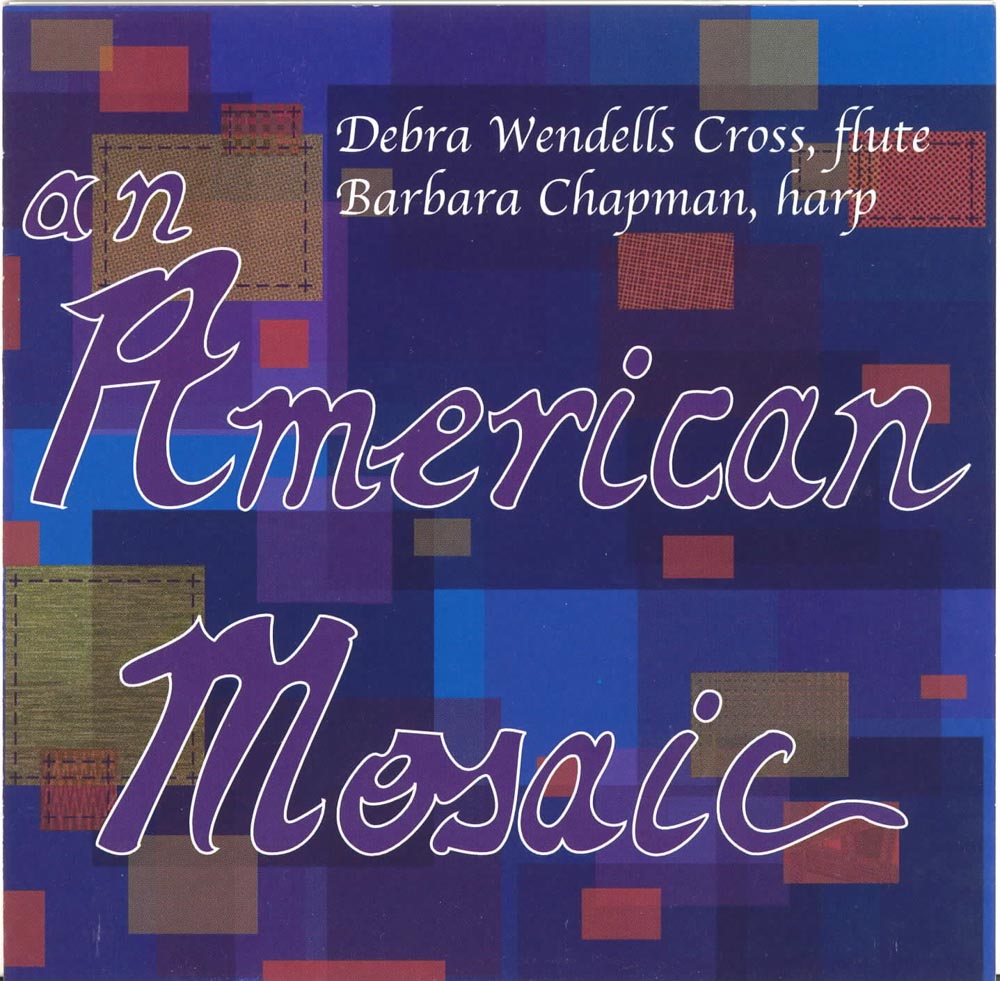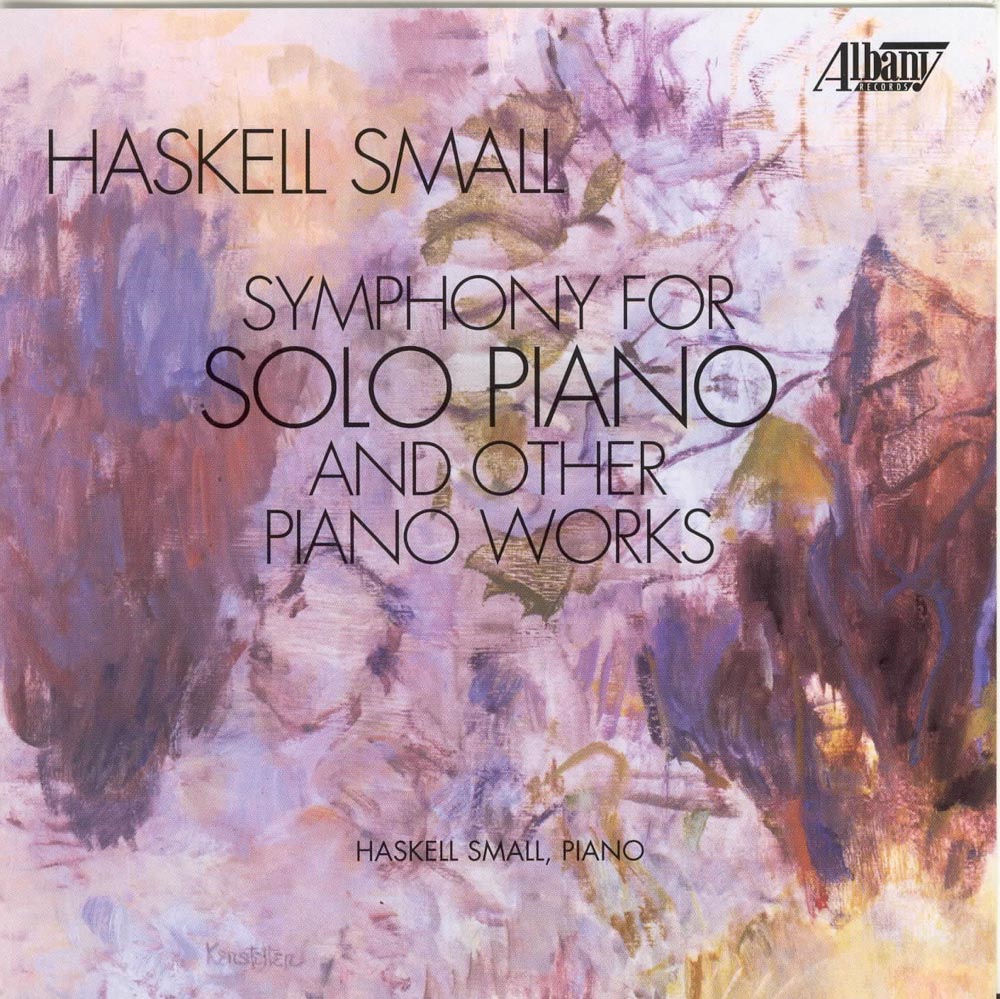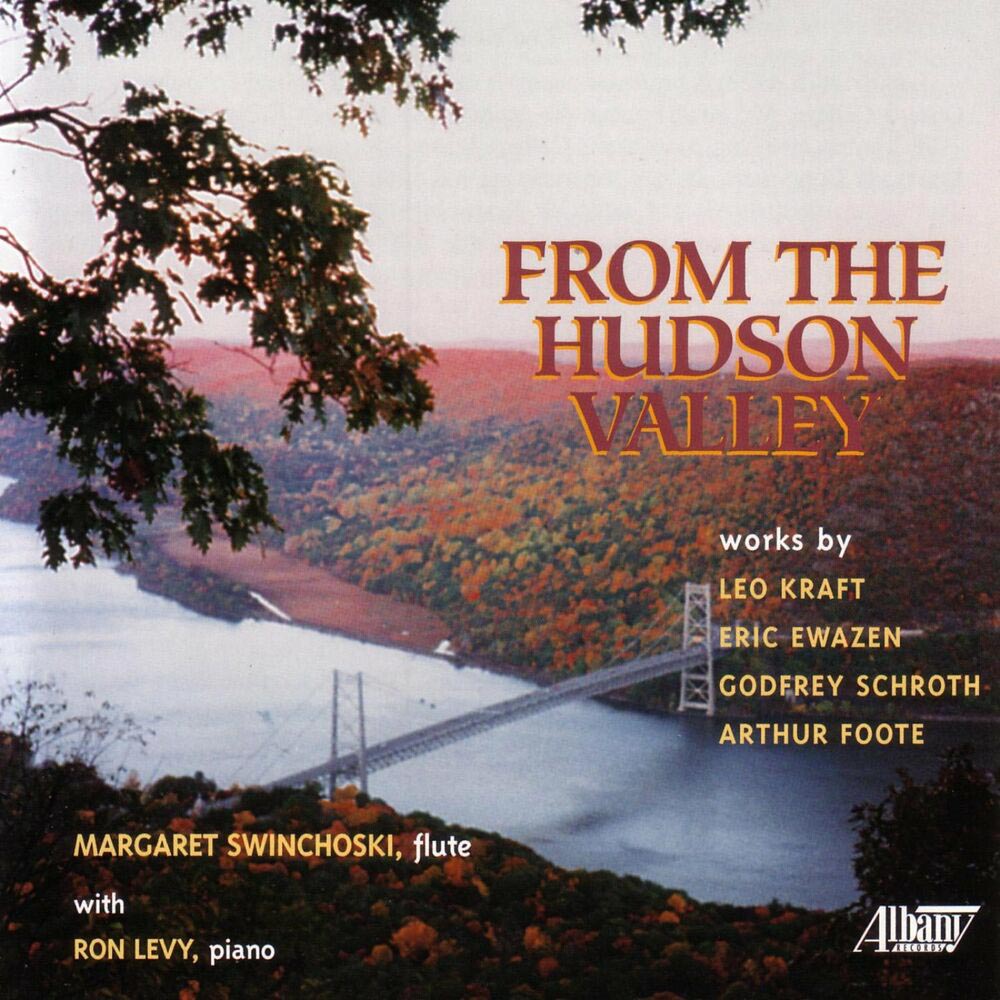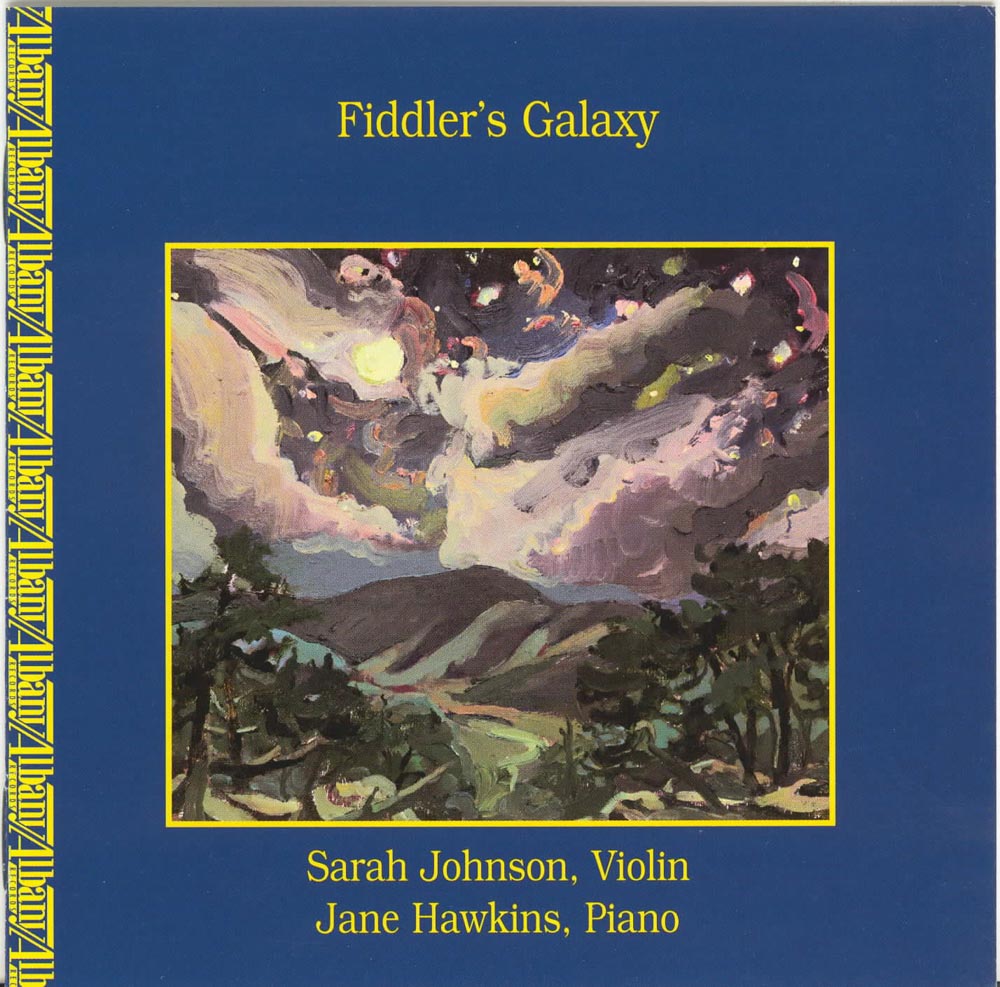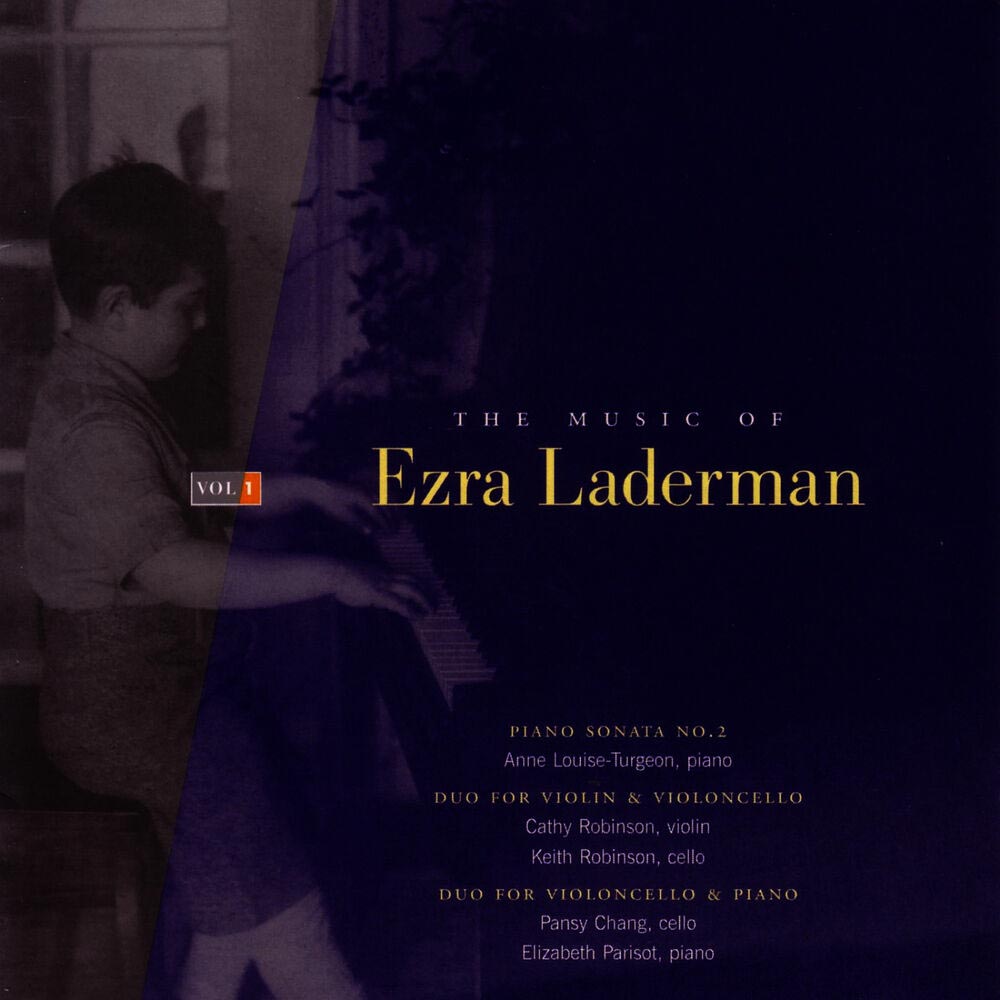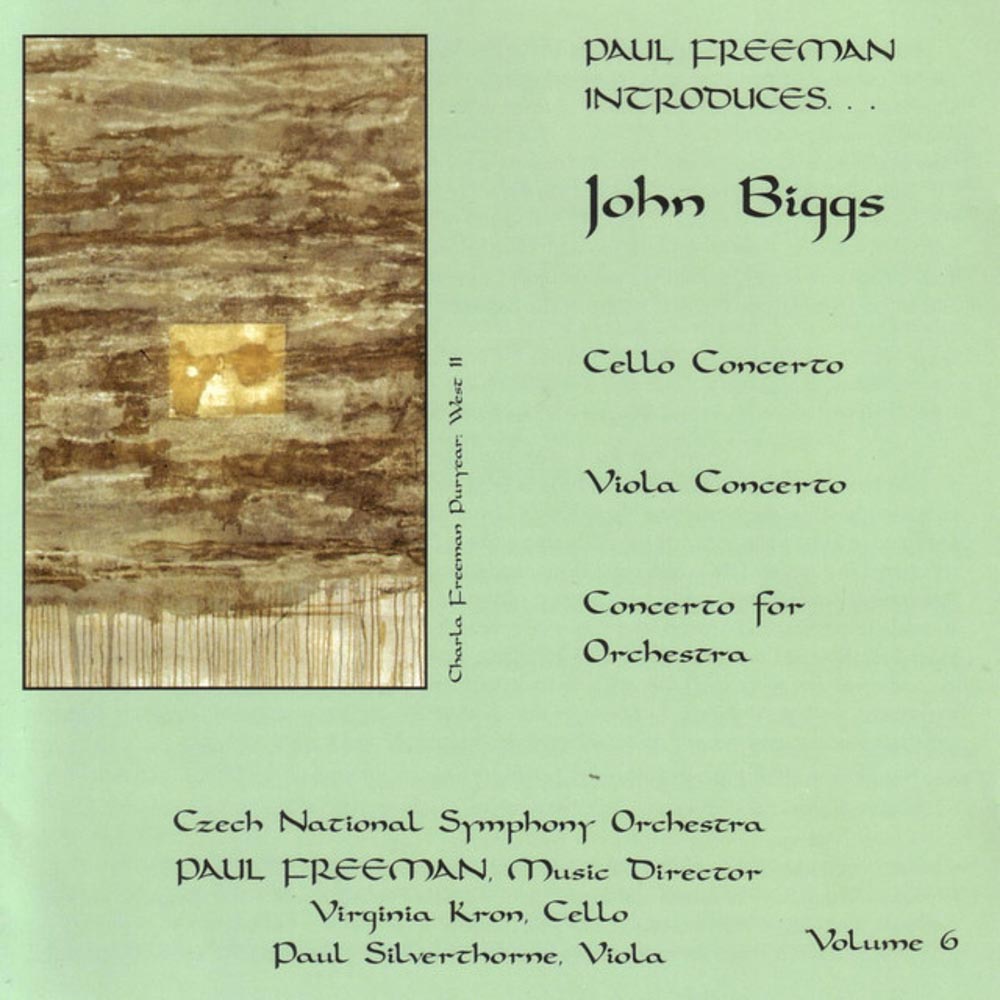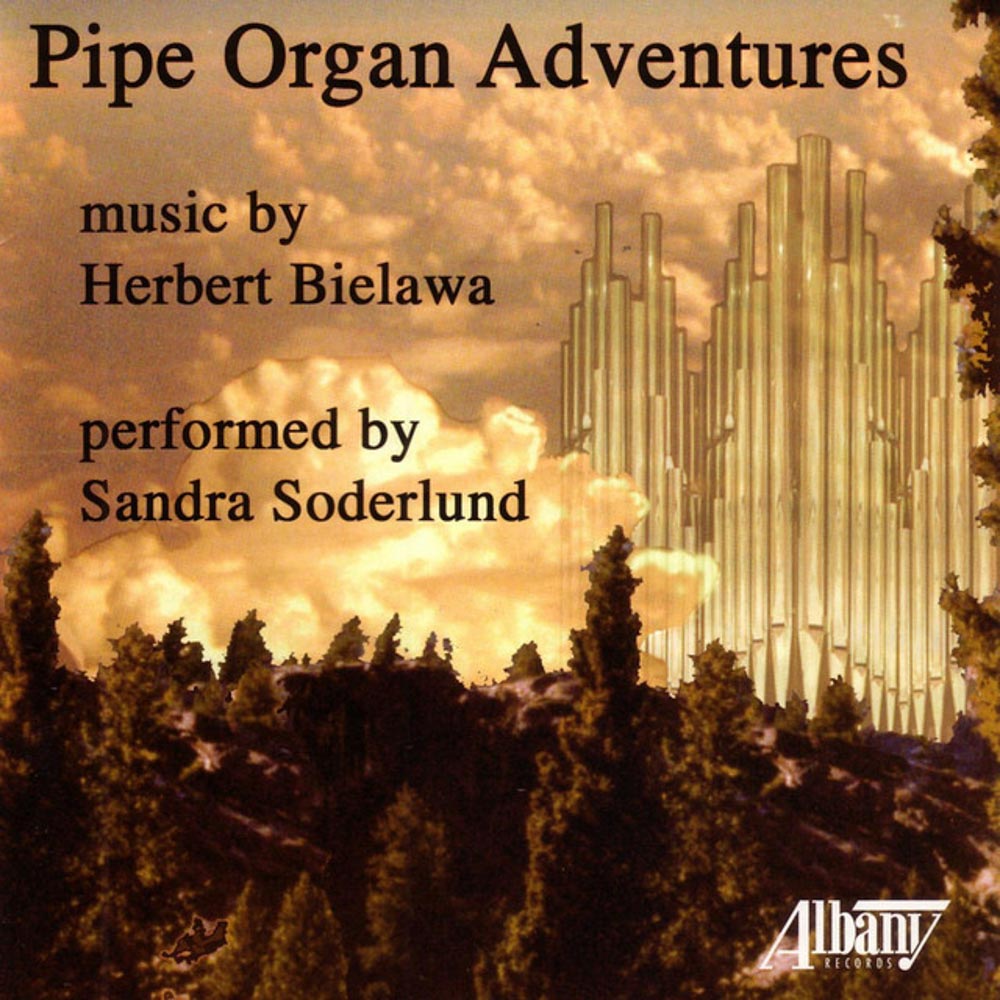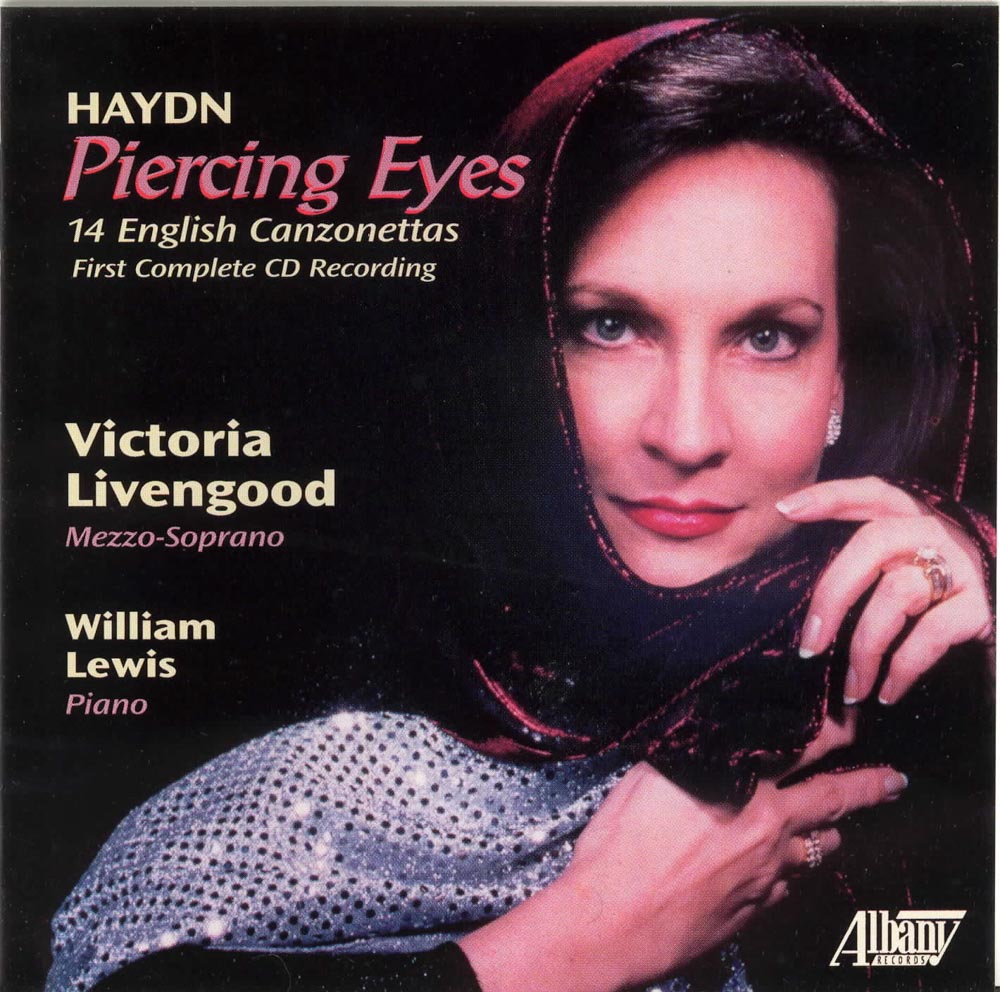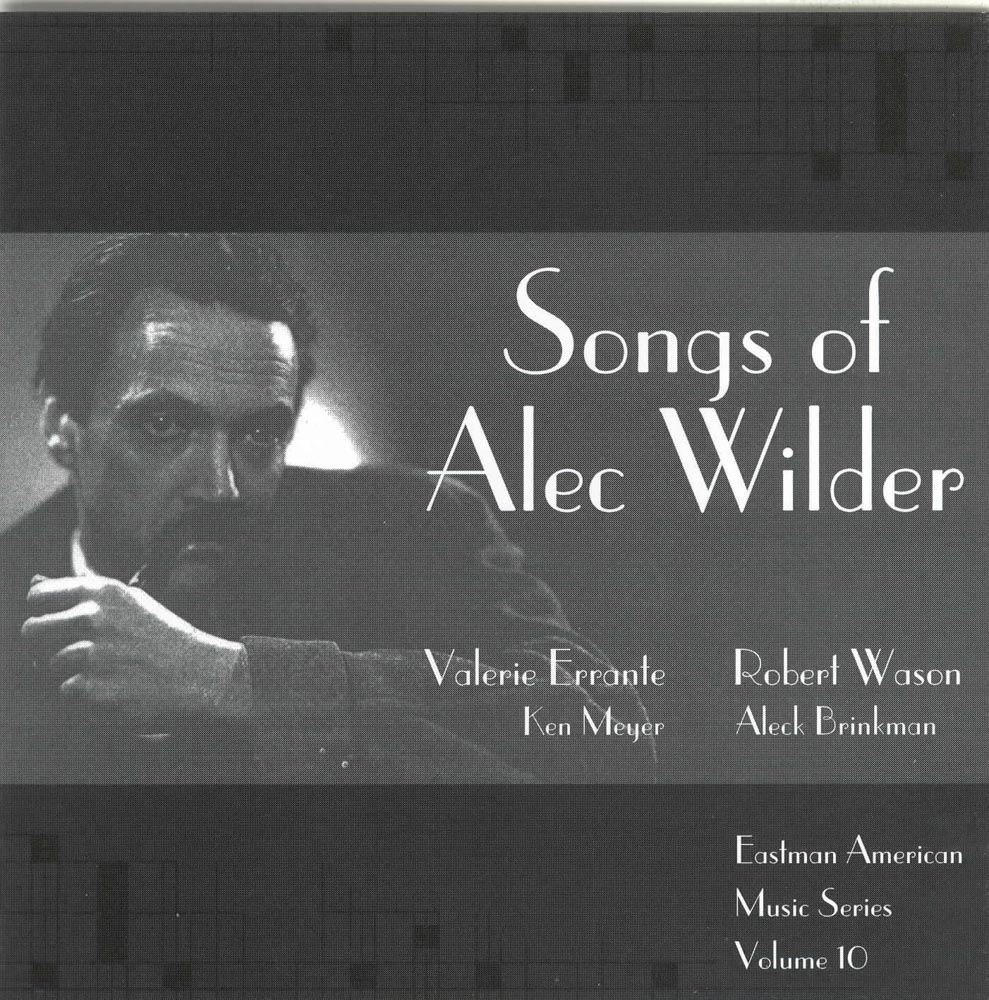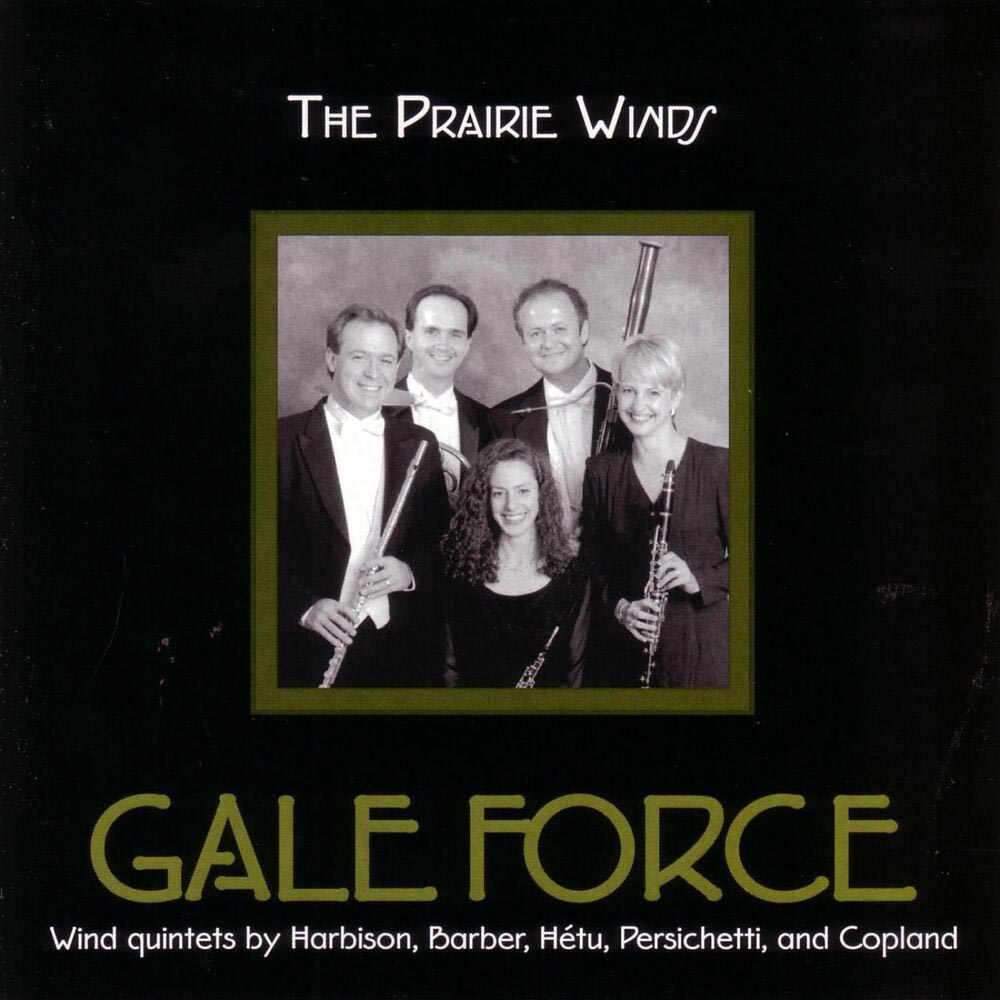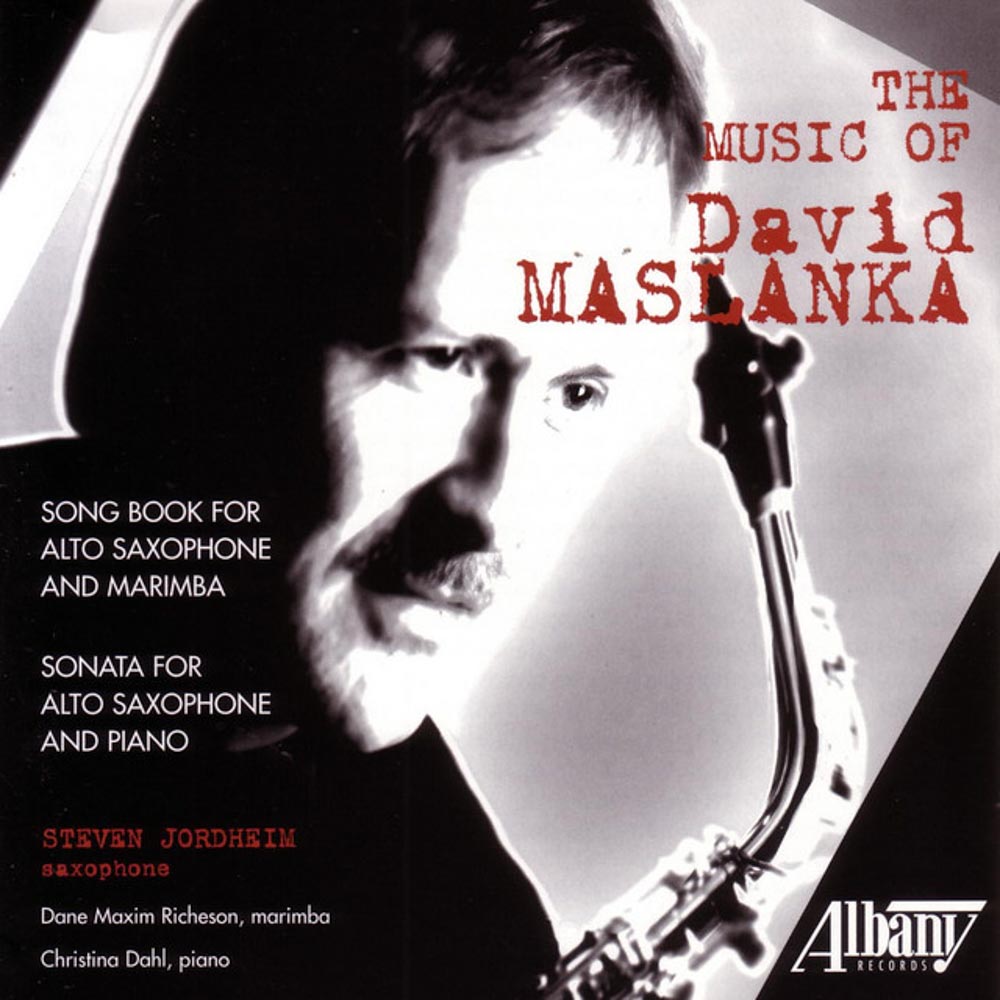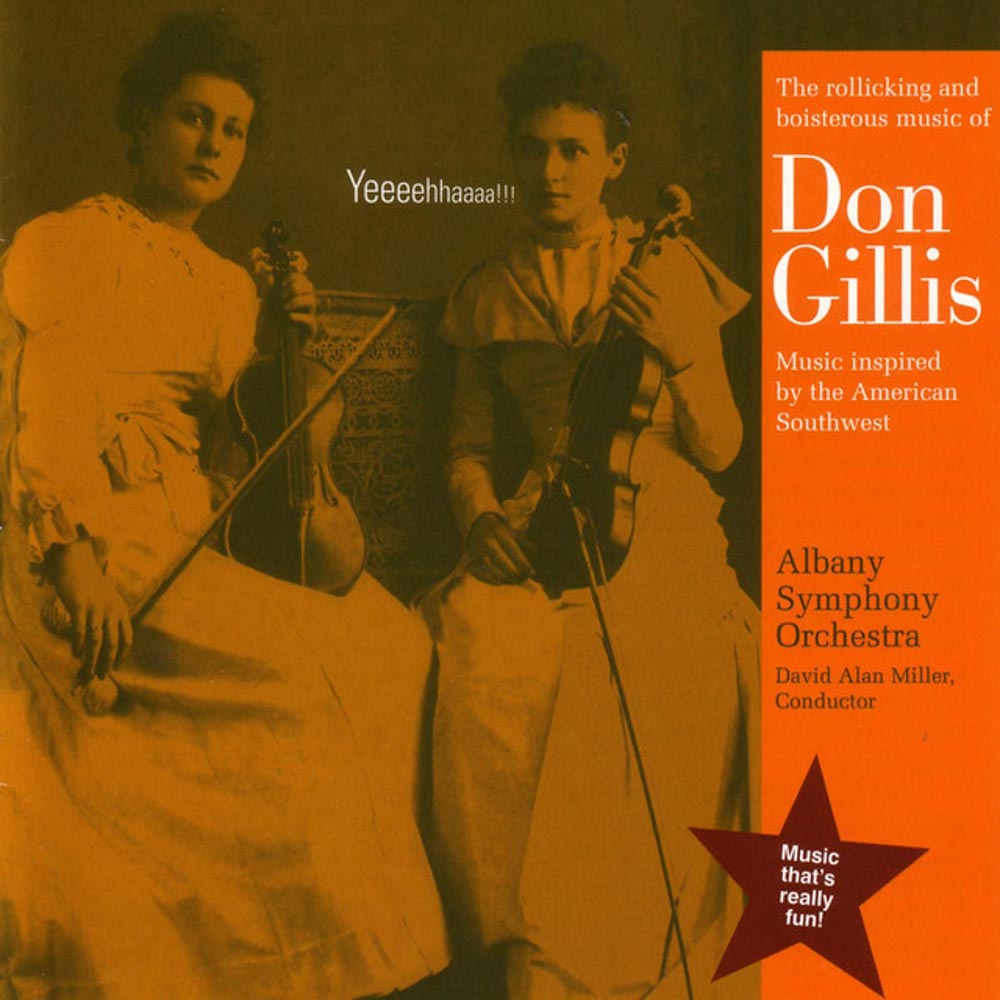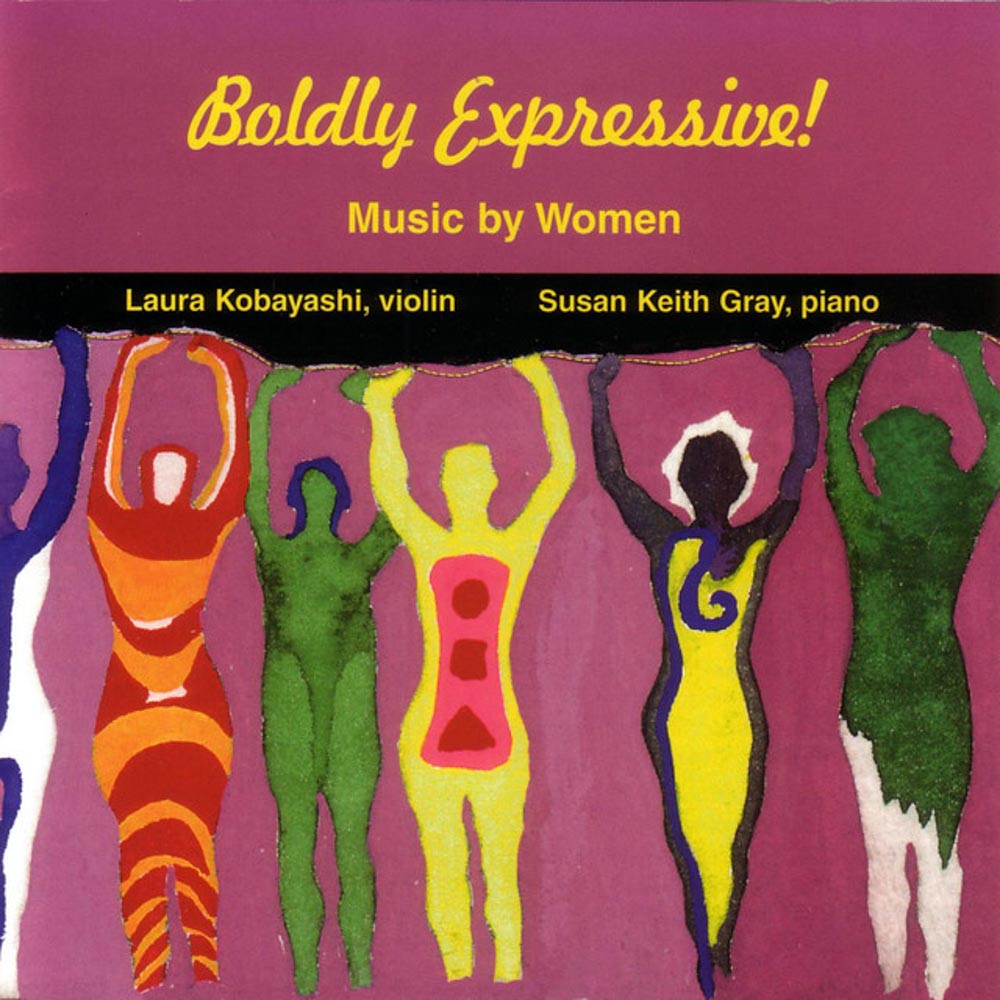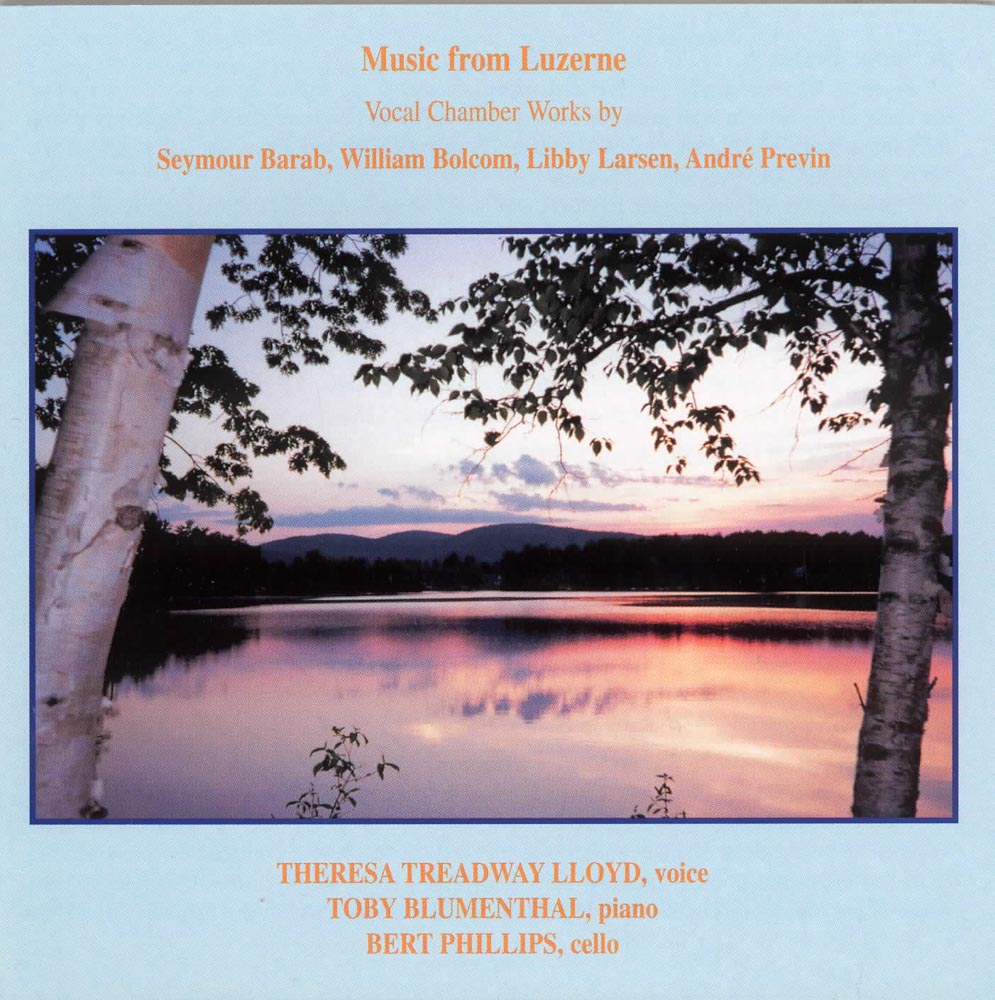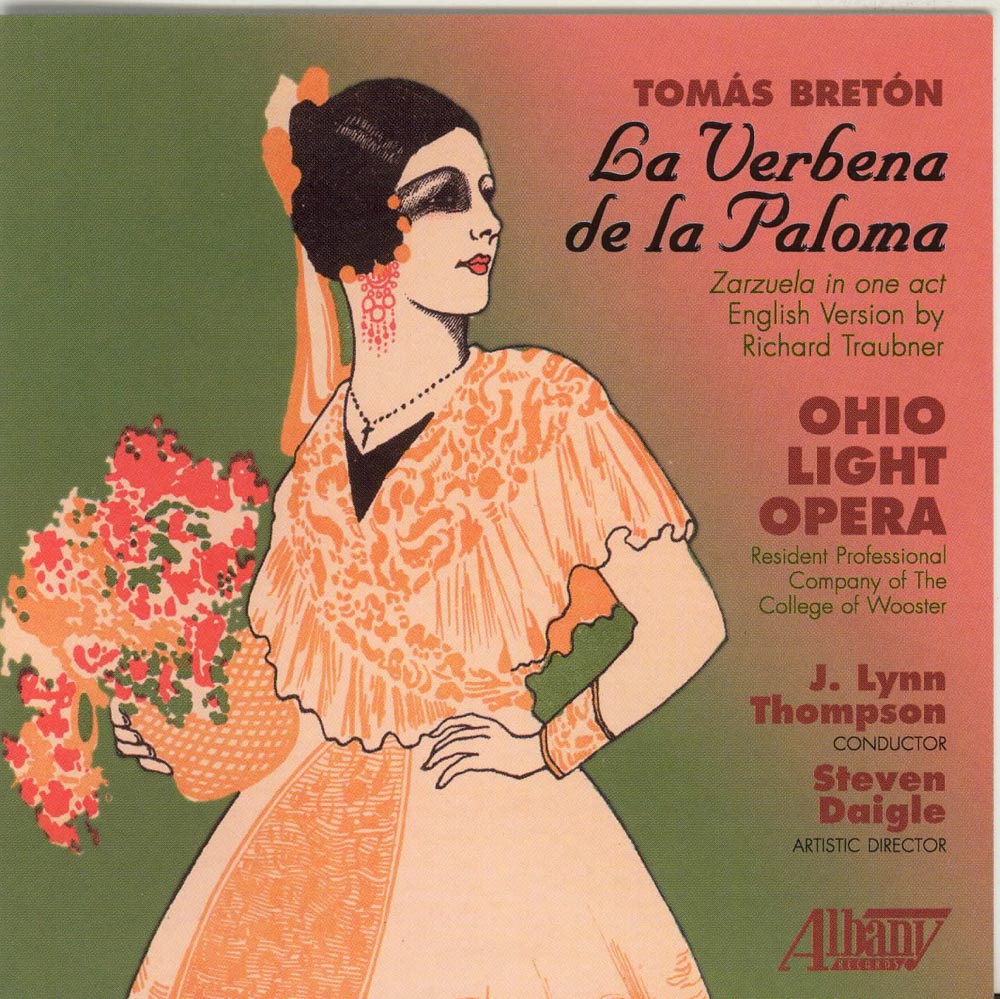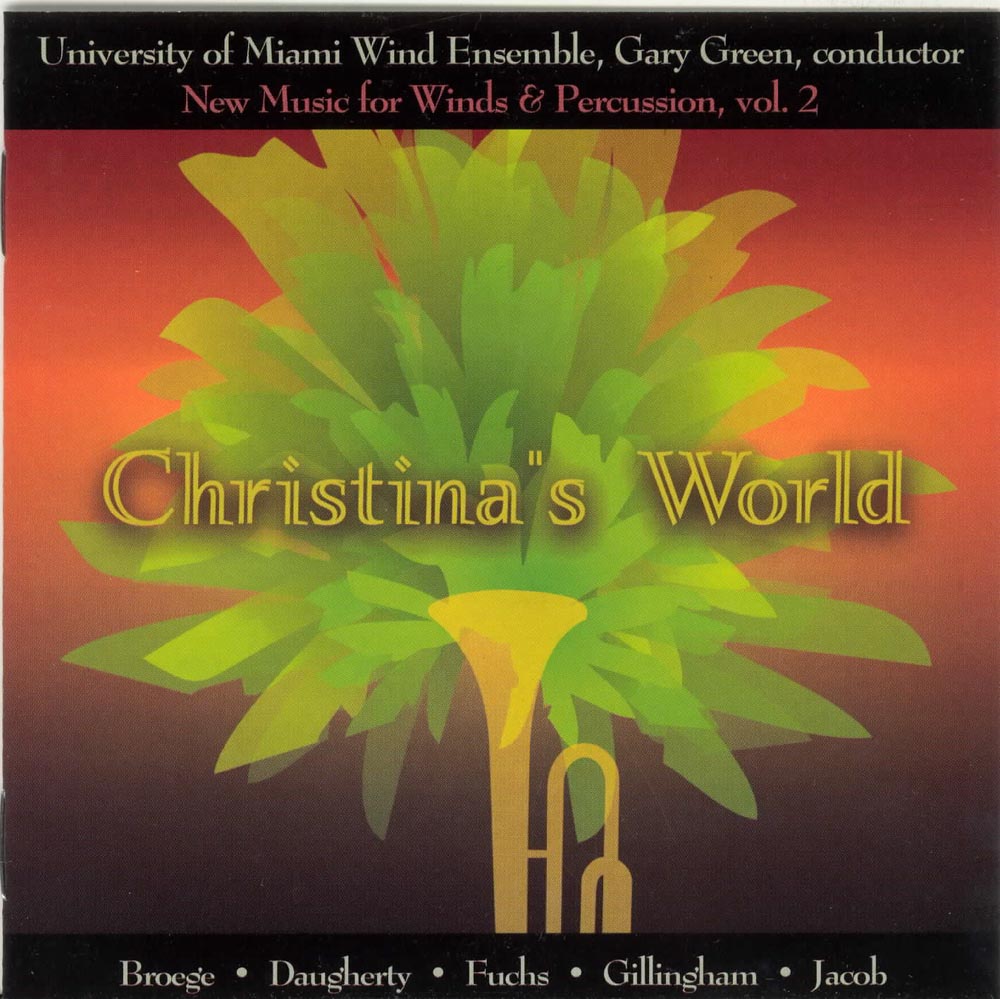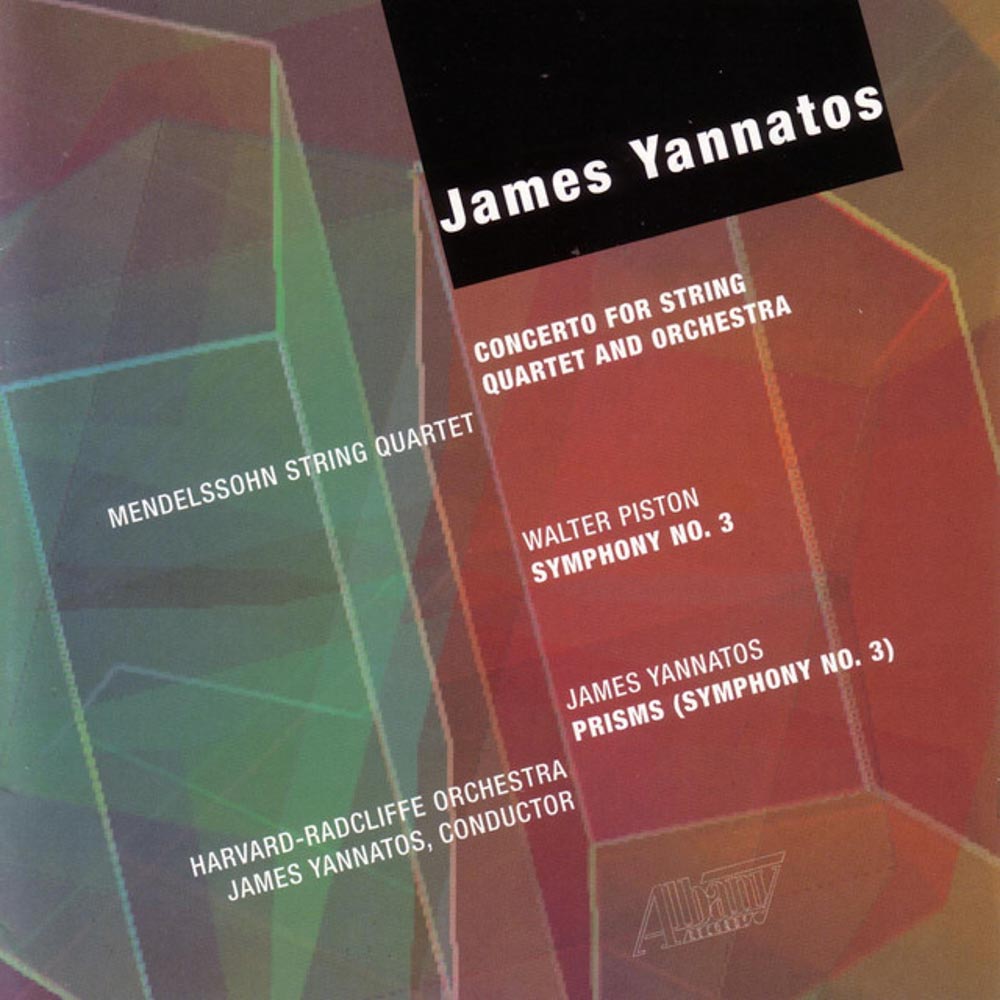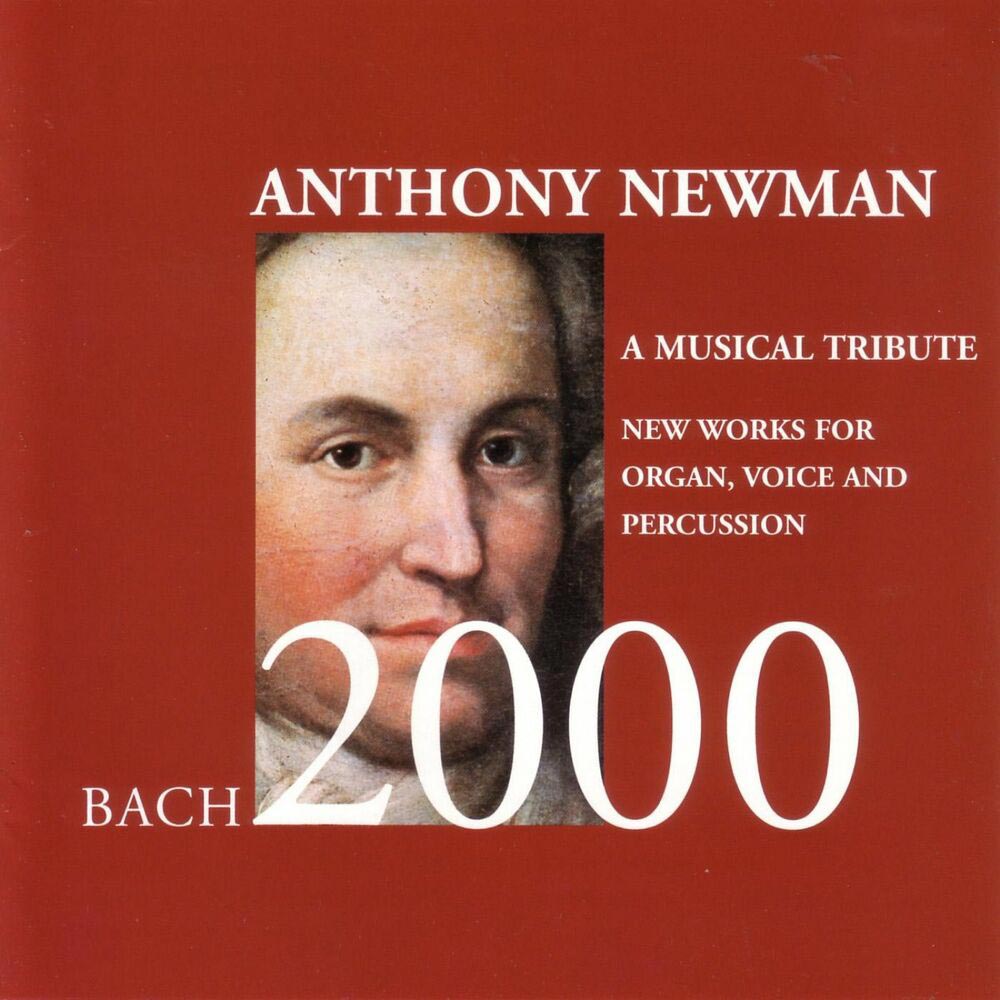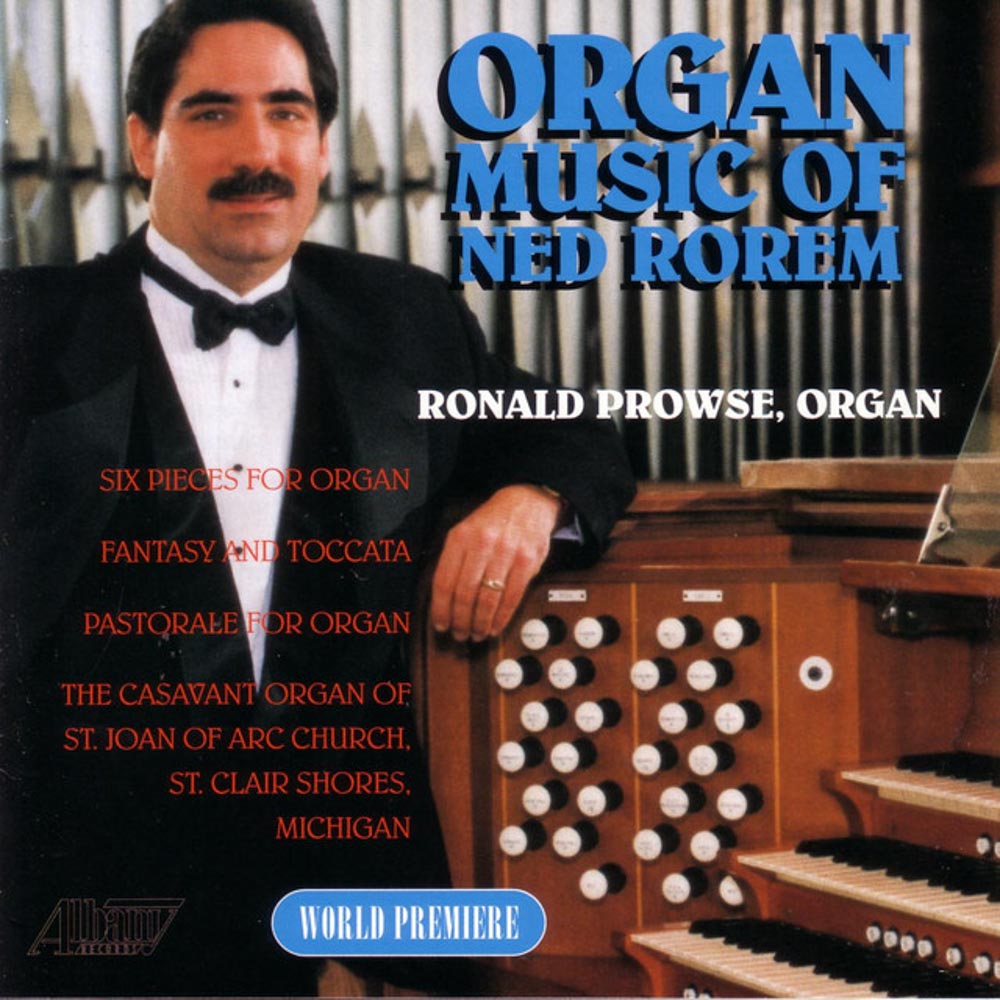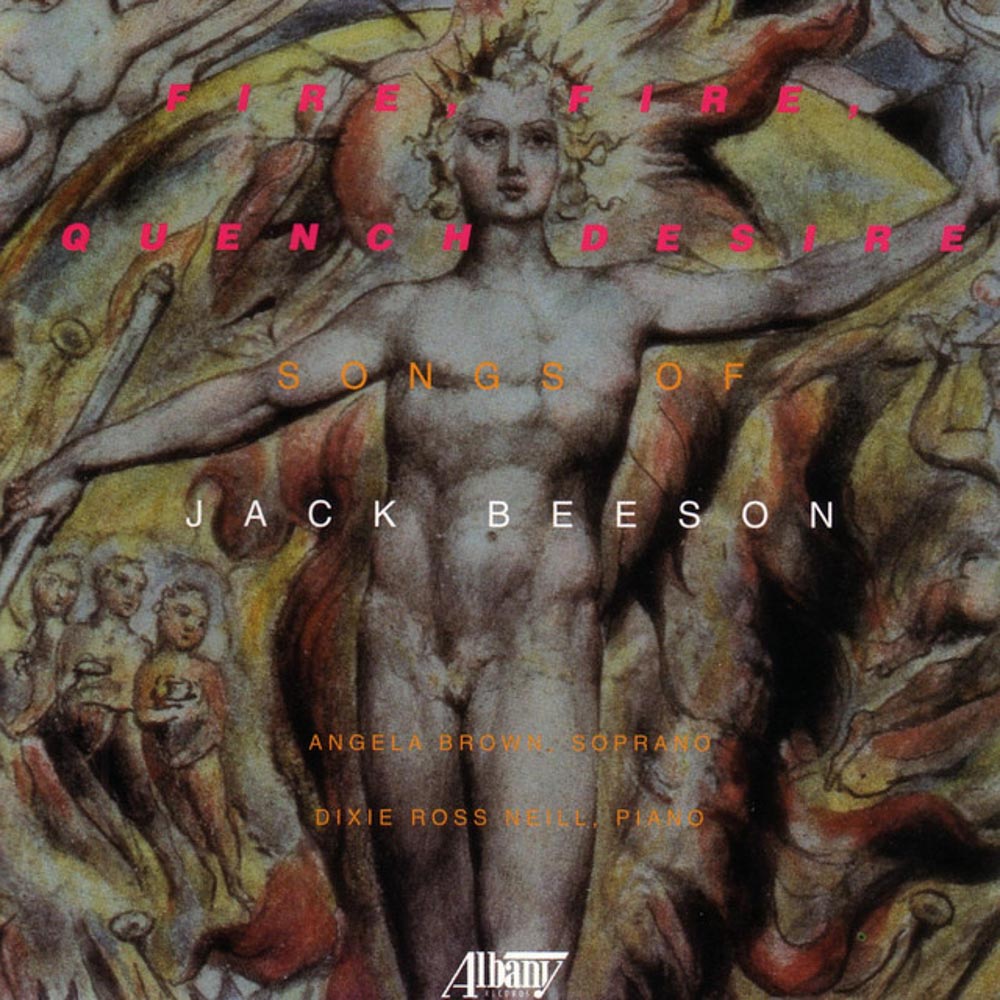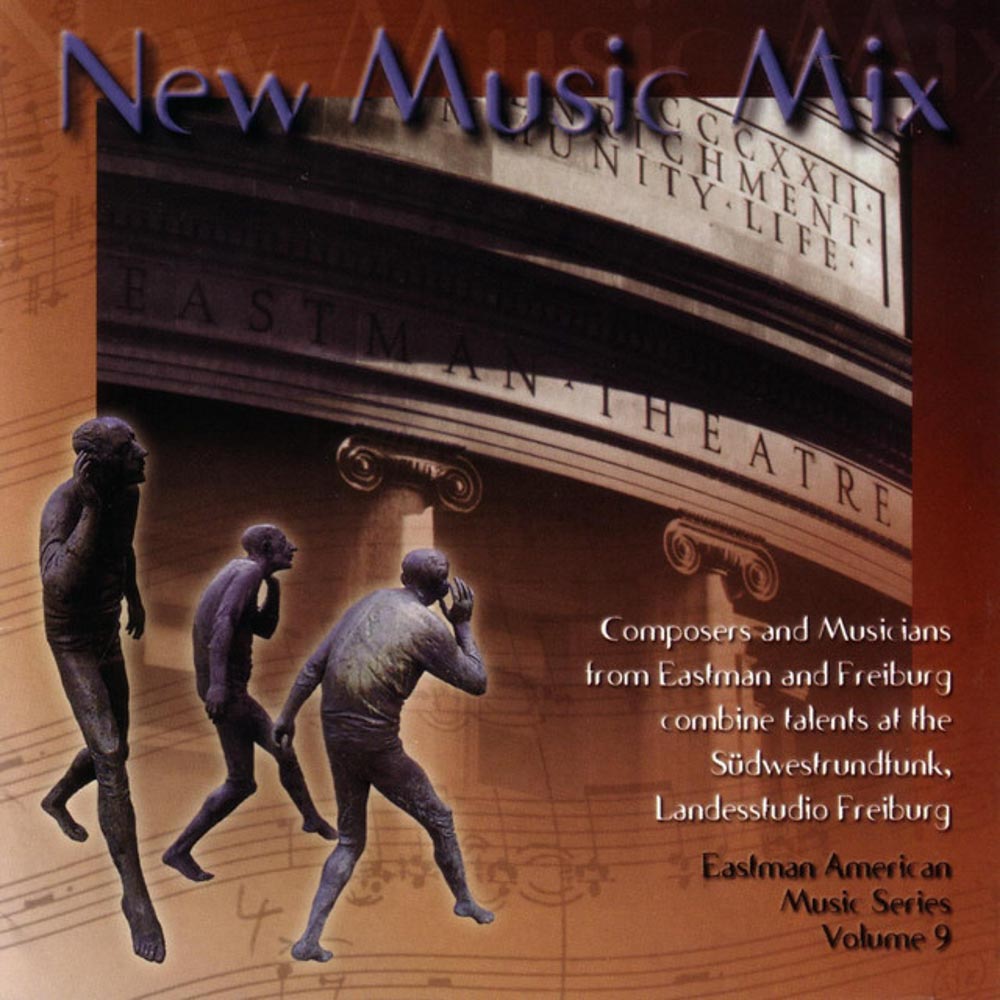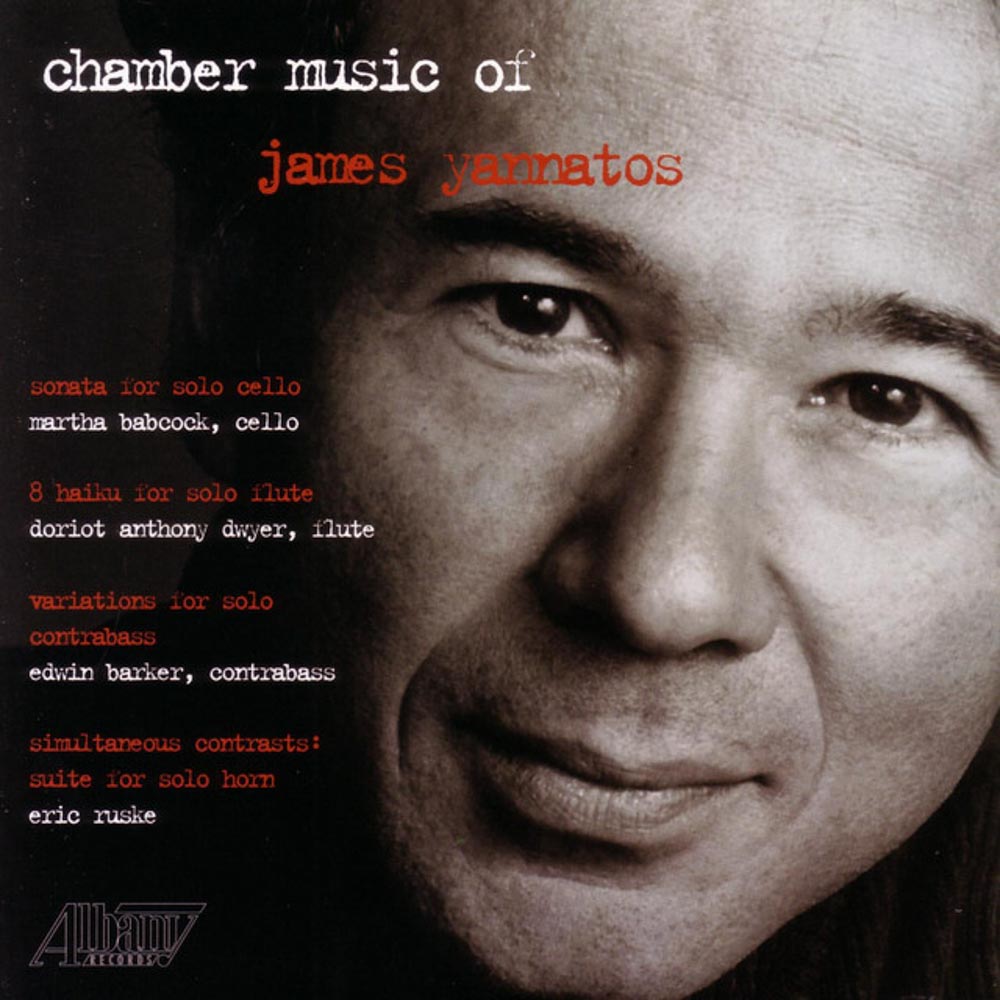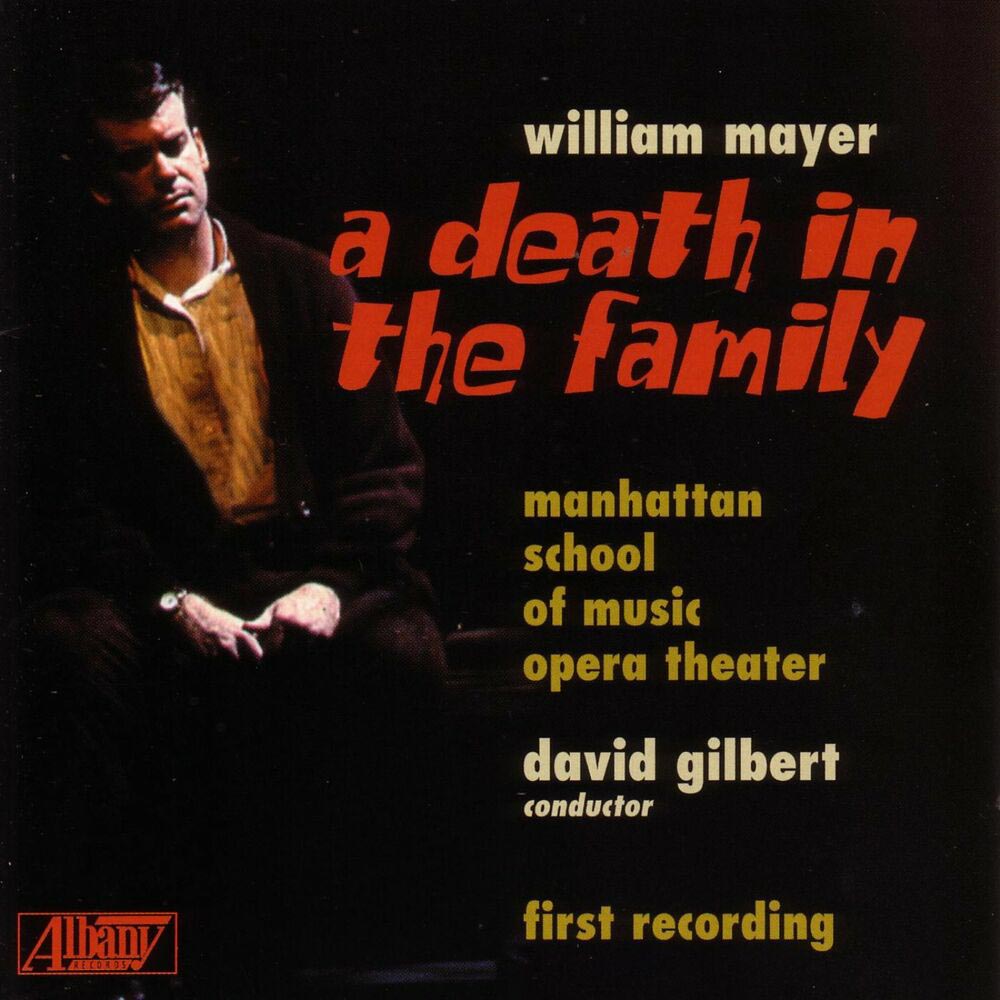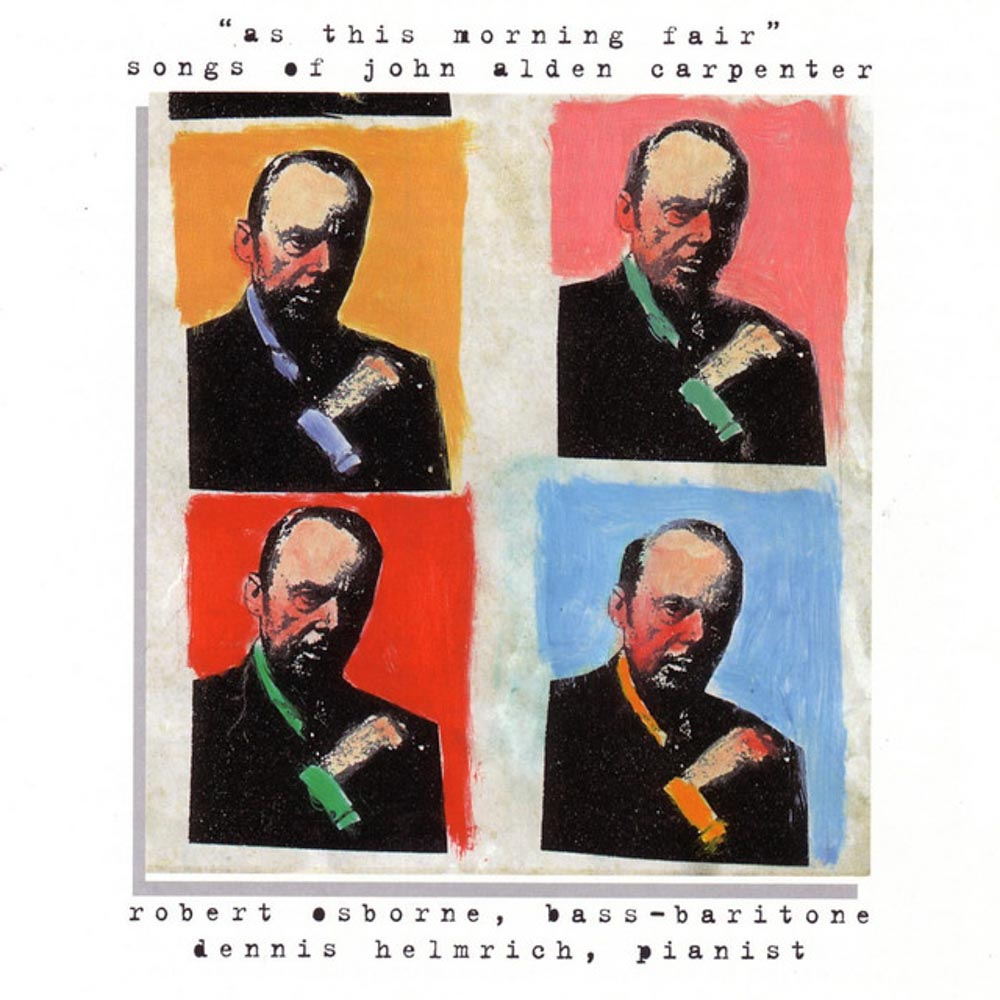Catalog #: TROY0422
Release Date: January 1, 2001ChamberEvan Chambers studied composition at the University of Michigan, where he joined the faculty in 1993. He is also a traditional Irish fiddler, and appears frequently as a performer of his own works. The composer writes: "I grew up on the edge of the suburbs. Living at a balance point between urban and rural, I did not fully belong in either world but always moved in both: symphony concerts, shopping malls, and trips to museums on one hand, and fields, ponds and endless walks in the woods on the other. I also occupied the dividing line between folk and classical music, surrounded as I was by my father's equally enthusiastic renditions of Tchaikovsky on the violin and John Henry on the five-string guitar. I came to love the beauty of in-between spaces." It can safely be said that Evan Chambers' music occupies most imaginatively all these in-between spaces.
Catalog #: TROY0425
Release Date: December 1, 2000OrchestralHere is one of Maestro Eshpai's greatest scores. This music was once available as a 2-LP Melodiya set and was long sought after by collectors. The sound has been re-mastered and is here presented on CD for the first time. In essence "A Circle" is a ballet symphony. So significant is the theme of the ballet, the landscape of the infinitely changing world, that one is naturally led to the idea of its treatment by purely orchestral, symphonic means outside any imagery. Lyricism occupies a prominent place in the ballet as does music from previous ages. There is the Viennese waltz, the military march, a gracious old-fashioned arrangement of the minuet. Of course rhythms of the 20th century permeate the work as do echoes of music from jazz bands and even a hint of rock. There are the sounds of bells throughout the work symbolizing death and there are lovely, lyrical themes from the strings symbolizing the two lovers. Here is music in the mainstream of Russian ballet. If you enjoy Shostakovich, you will love this new composition by Eshpai.
Catalog #: TROY0424
Release Date: December 1, 2000Wind EnsembleDavid Maslanka writes about his Saxophone Concerto: "This concerto turned out to be a good deal longer than I would reasonably want. As I got into the composing, the ideas became insistent: none of them would be left out!" About his Marimba Concerto, here is what Mr. Maslanka has to say: "This concerto could easily be subtitled 'rhapsody' or 'fantasy' because of its meditative or free-flowing quality. It is easy to describe the overall shape an extended slow to moderate opening section, an explosive fast section, a quiet closing section but less easy to describe the internal working of the piece." Here the listener will have to use his or her imagination. David Maslanka was born in New Bedford, MA. He attended the Oberlin Conservatory, and studied for a year at the Mozarteum in Salzburg, Austria. He did master's and doctoral work in composition at Michigan State University with H. Owen Reed. He is now a free-lance composer and lives in Missoula, Montana.
Catalog #: TROY0423
Release Date: November 1, 2000ChamberHailed by the Atlanta Constitution and Journal as a "recitalist of great poise and technical security, dazzling precision and virtuosic flair," Alison Young has a diverse music career as an orchestral principal, soloist and teacher. A graduate of the Interlochen Arts Academy, she holds degrees in music from the University of Southern California and the Cleveland Institute of Music. In 1998, composer David Diamond applauded Ms. Young's interpretation of his Flute Concerto as "some of the finest flute playing I have heard." She recorded the premiere of this work which can be found on Albany TROY308. For much of her life Alison Young has felt a desire to travel to Argentina and immerse herself in that culture. In 1998, she was invited to serve a six-week performing and teaching residency in Argentina in the regions of Patagonia, La Plata, Buenos Aires, and Corrientes. She continued to share her work and study of the music with a seven-week tour of the United States in 1999 presenting recitals and master classes on Argentinean flute music. This recording represents the culmination of that particular project with a cross-section of music for flute from Argentina.
Catalog #: TROY0419
Release Date: November 1, 2000ChamberDebra Wendells Cross holds the position of Principal Flute in the Virginia Symphony. She also serves on the faculties of the College of William and Mary and Old Dominion University, and during the summer is Principal Flutist of the Eastern Music Festival in Greensboro, North Carolina. The Seattle native graduated with honors from the New England Conservatory. She also studied in Paris with Michel Debost. Barbara Chapman holds the position of Principal Harp for the Virginia Symphony and the Virginia Opera. She has also performed at the Glimmerglass Opera Festival in New York and continues to perform annually at the Virginia Waterfront International Arts Festival.
Catalog #: TROY0417
Release Date: November 1, 2000ChamberBorn in Barcelona, Spain, Leonardo Balada graduated from the "Conservatorio del Liceu" of that city and the Juilliard School in 1960. He studied with Vincent Persichetti, Aaron Copland and Igor Markevitch. Since 1970 he has been teaching at Carnegie Mellon University in Pittsburgh, where he is University Professor of Composition. Another volume of his music appears on Albany TROY343.
Catalog #: TROY0413
Release Date: November 1, 2000InstrumentalCurrently a faculty member of the Washington Conservatory, Haskell Small received his musical training at the San Francisco Conservatory and Carnegie-Mellon University. He has studied piano with Leon Fleisher, William Masselos and Robert Sheldon and composition with Vincent Persichetti. His musical output is difficult to categorize. Nevertheless, it is clear that he is a throwback to the great composer/pianist tradition of the past four centuries. For almost three decades he has been performing internationally as a soloist. Throughout his teen years, he was adept at playing various jazz and rock styles by ear, but he did not acquire fluent musical literacy until he was 18. Although his compositions include works for cello, voice and various chamber and orchestral groupings, solo piano music remains the main thrust of his work. The program of solo piano music found on this disc was conceived, and is presented, with the intense concentration, wit, and quirky juxtapositions that Small's concert audiences have learned to expect.
Catalog #: TROY0416
Release Date: October 24, 2000OrchestralThis collection of works by Respighi, Martinu and Musorgsky/Ravel is centered around pictures: Boticelli, Francesca, and Hartmann. Given stunning performances by the Long Beach Symphony conducted by Jo Ann Falletta, this is Albany's second release with this fine orchestra and world-class maestra.
Catalog #: TROY0409
Release Date: October 1, 2000Vocal"This CD is a crossover adventure - a musical cocktail of classic jazz standards with a dash of continental, a Latin twist and a splash of the blues. This eclectic atmosphere has always been my home. My father, a contemporary classical composer (Leon Kirchner, Pulitzer Prize 1967), conductor and pianist, took me to see Ray Charles, played and analyzed Duke Ellington songs with me and pointed out the brilliance of a young guitarist named Jimmy Hendrix as we discussed Mozart, Bach, and Schoenberg. My mother was a coloratura soprano who had performed classical lieder and show tunes in New York supper clubs. I myself have moved from classical, folk and pop music to musical theater and ultimately to jazz." Thus writes Lisa Kirchner as she describes this new album.
Catalog #: TROY0407
Release Date: October 1, 2000ChamberKenneth Frazelle was born in Jacksonville, North Carolina and was a student of Roger Sessions at the Juilliard School. He attended high school at the North Carolina School of the Arts, where he now teaches. He is composer-in-residence with the Los Angeles Chamber Orchestra and the Santa Rosa Symphony. His score for Still-Here brought him international acclaim. The music, written for the folksinger Odetta and ensemble, was written as part of a multimedia dance theatre work. The film version of Still-Here has been viewed by millions on National Public Television and in Canada, France and Japan. Composer and percussionist Aaron Bachelder has composed Chamber, choral, Orchestral and electronic music, as well as songs in popular genres. In addition to his compositional activities, he is a founding member of the improvisational Chamber group, the Spool Ensemble, and the rock band Chapsticks. Robert Ward writes that his piece Appalachian Dances and Ditties "reflects the interest I have had in American folk music in general since the 1950's and in Appalachian music in particular since the 1970's when my wife and I had a second home in Sparta, North Carolina. The richness and vitality of that music is unparalleled by that of any other region of the country." Lukas Foss writes: "I wrote my Three American Pieces at a time when I was in love with my newly adopted country. All the music possesses an open-air quality I think I learned from Aaron, but I have handled it my own way. And there is always the influence of folk music - I looked at it a lot. I was also in love with jazz. The only popular idiom I never got close to was Broadway."
Catalog #: TROY0399
Release Date: October 1, 2000ChamberEzra Laderman writes: "The world I grew up in living in Brooklyn, always close to Ebbets Field and the Children's Museum, consisted of all those things kids did as first generation Americans. To that heady mix there was, as well, music. My parents, Isidor and Leah, were born in Galicia, Poland; came to the United States early in the 20th century, met, married, settled in Brooklyn, and when I arrived June 29, 1924, there was an upright Worthington piano in the apartment and my brother Jack practiced on it daily. When my younger brother Gabriel arrived in 1929, I was already deeply involved in music. When I was three I heard my first children's concert at Carnegie Hall led by the debonair Ernest Schelling. During the height of the depression I used to sit next to the fountain of the Sculpture Court at the Brooklyn Museum while the WPA Orchestra performed. On Saturday nights I would occupy an empty box overlooking the stage at the Brooklyn Academy of Music as some musicians from the pit Orchestra ate sandwiches and drank Chianti as the Salmaggi Opera Company performed Italian repertoire. On Friday afternoons at school we would hear Walter Damrosch take us on musical journeys over the airwaves. When we finally got our Atwater Kent radio, Sunday afternoons belonged to the New York Philharmonic (What a difference between children growing up then and children growing up now! Is it any wonder our classical music is in such trouble today?) One day when I was six, I was brought to the Brooklyn Community Music School, just down the street from BAM and suddenly my musical education in the guise of the Dalcrosse method began. This musical world competed with growing up a city boy, never knowing how desperately poor we were, going (on scholarship) to the Ethical Culture School, where learning Greek history was essential, moving, one step ahead of the landlord, to seven apartments the first decade of my life, and having the extraordinary sense that everything was possible. At four, I was improvising at the piano; at seven, I began to compose music, writing it down. I hardly knew it then, but I had at a very early age made a giant step to becoming a composer."
Catalog #: TROY0394
Release Date: October 1, 2000OrchestralJohn Biggs was born in Los Angeles. He received his Master's Degree in composition from the University of California at Los Angeles. He also studied in Belgium. His teachers were Roy Harris, Lukas Foss, Ingolf Dahl, Flor Peeters and Halsey Stevens. As an educator, he has taught at Los Angeles City College, UCLA, UC Berkeley and served as composer-in-residence to six colleges in Kansas under a grant from the Department of Health, Education and Welfare. As a performer he founded the John Biggs Consort, which toured internationally under Columbia Artists Management, specializing in medieval, renaissance and 20th century music. Paul Freeman writes: "I was particularly struck by the similarity of approach between Biggs and that of the Baroque era. His feel for tone color, Orchestration, counterpoint and compositional form in general is indeed very strong. The unusually cheerful brightness of the cello concerto is a good contrast to the more austere and penetrating viola concerto."
Catalog #: TROY0374
Release Date: October 1, 2000OrganHerbert Bielawa earned his degree in piano and composition at the University of Illinois and the University of Southern California. He has been a member of the faculty of Bethany College and San Francisco State University where he founded Pro Music Nova, a contemporary music performing group, and the Electronic Music Studio. Sandra Soderlund is Organist at the Unitarian Universalist Church of Berkeley and teaches harpsichord and Organ at Mills College in Oakland, California. She is on the National Council of the American Guild of Organists.
Catalog #: TROY0406
Release Date: September 1, 2000VocalLieder, so prominent in German and Austrian culture at the end of the 18th century, did not figure prominently in the output of Franz Joseph Haydn. To most of today's musical public, they are of somewhat secondary importance, and not well known. Only in recent years, such internationally acclaimed vocalists as Elly Ameling, Arleen Auger, Anne Sofie von Otter, and now the great American mezzo Victoria Livengood, have begun to include them in their recitals. Haydn wrote his first songbook in 1781, with a second in 1784. These two sets of English canzonettas were created during his stay in London in 1794-95, where he met the English poetess Anne Hunter. Later, two more English songs were added. The canzonettas are marked by a rhapsodic and elegiac flavor, influenced by Herder's emphasis on the folk song.
Catalog #: TROY0404
Release Date: September 1, 2000VocalMany people think Alec Wilder was our finest composer of American songs. This CD will give you the opportunity to judge for yourself. Alec Wilder was born in Rochester, N.Y. Largely self-taught, he came of age as a composer with the birth of the Eastman School of Music. His relationship to the school was a rocky one, though he was a regular during his student years, he never graduated. He was a composer who was at home with American music in the largest sense - from Broadway to Hollywood, popular or classical - and the idiosyncratic mixture of styles in his music makes it just as much an "American original" as that of his avant-garde contemporaries. The "President of the Derriere-Garde" as he was often called, he simply composed - and often composed simply - music of charm and beauty for the musicians who were his artistic partisans, giving little thought to the categories into which other people might place it.
Catalog #: TROY0401
Release Date: September 1, 2000ChamberNorth America's foremost wind quintet, the Prairie Winds, combines the artistry of five virtuoso musicians from the Chicago Symphony and the faculties of the University of Illinois, Oklahoma State University, and Wheaton Conservatory. The music in this collection represents some of the finest wind quintet music written by North American composers. The richness and diversity of the past century's music is evident through the warmth and lyricism of the quintets of Barber, Persichetti and Copland, the mischievous tongue waggling and technical challenge of John Harbison's writing, and the pathos of Jacques Hetu's Quintette. All the music is powerful, comical, and personal, but most of all, it is the sounds of 20th century North America.
Catalog #: TROY0392
Release Date: September 1, 2000ChamberDavid Maslanka is an American composer whose music we feel strongly about here at Albany. We are pleased to be able to bring you this world premiere recording of two important pieces for saxophone. Mr. Maslanka writes: "The Sonata for Alto Saxophone and Piano was commissioned by the North American Saxophone Alliance. It is a large, passionate and sometimes ferocious piece which mixes old and new elements. Song Book was commissioned by the artists who perform it on this disc. The movements of Song Book are relatively brief. They have a particular thing to say, a particular mood and attitude to express, and then they are done. I think of the pieces as emotional scenes. Whereas the Sonata tends to be overwhelming in its technical and textural demands, the lines and textures of Song Book are for the most part much simpler and quieter."
Catalog #: TROY0391
Release Date: September 1, 2000OrchestralHere is a disc of music to be enjoyed. Anyone who likes Beethoven, Mozart and Brahms, will enjoy Gillis. This is a true “crossover” CD. Gillis was born in Cameron, Missouri and studied the trumpet and trombone as a boy. He performed in the Cameron Rotary Club band and in his high school orchestra. In high school he formed his own jazz band for which he wrote arrangements and original music. At 17, he moved to Ft. Worth, Texas and enrolled in Texas Christian on a trombone scholarship (don’t you love this guy’s roots?). He studied orchestration and composition at North Texas State in Denton, then got a job as arranger and producer for a Ft. Worth radio station. He then went to the NBC station in Chicago, lasted one year there and went to NBC in New York where he served as the chief producer and writer for the NBC Symphony Orchestra concerts. He established a close personal relationship with Toscanini who conducted many of his works. After the Orchestra disbanded in 1954, he became vice-president of the Interlochen Music Camp, then Chairman of the Music Department at Southern Methodist University (1967-68), chairman of the fine arts department at Dallas Baptist College (1968-1972) and in 1973 he was appointed composer-in-residence at the University of South Carolina. So, you are thinking, Gillis sounds like a typical academic composer. Hardly. Gillis’ music will not only brighten your day, but your entire holiday season. All the works but the Symphony No. 5 1-2 are recorded here for the first time anywhere.
Catalog #: TROY0372
Release Date: September 1, 2000InstrumentalHere we have four premiere recordings by 19th and 20th century women composers. Here are some facts about these relatively unknown composers. Grandval studied music with Friedrich Flotow, composition with Saint-Saens and piano with Chopin. Not bad! She was a prolific composer and many of her works were published, performed and favorably reviewed during her lifetime. Johanna Senfter was from Oppenheim, Germany. She studied in Frankfurt and then in Leipzig with Max Reger. She composed more than 180 works including nine symphonies, concertos for piano, violin, and cello, five string quartets, a piano quintet, a clarinet quintet and numerous vocal works. Serra Miyeun Hwang was born and raised in Seoul, Korea. She moved to the United States at the age of 18, later receiving a BA in composition for the University of California. The German composer Barbara Heller is best known as the editor of a collection of the piano music of Fanny Mendelssohn-Hensel. Clarke and Bacewicz need no introduction.
Catalog #: TROY0408
Release Date: August 1, 2000VocalThe Luzerne Chamber Music Festival presents eight weekly concerts on Monday evenings during July and August in Lake Luzerne, New York. The concerts are held under the auspices of the Luzerne Music Center, a music camp for talented young musicians founded in 1980 by Philadelphia Orchestra cellist Bert Phillips, and his wife, Toby Blumenthal, concert pianist. All the music on this CD was performed as part of this imaginative concert series. Theresa Treadway Lloyd is the head of vocal studies at the Luzerne Music Center and does perform regularly at the Festival.
Catalog #: TROY0405
Release Date: August 1, 2000OperaRichard Trauber who made the English translation of this work writes: "Spanish operetta is technically older than any other European operetta form, taking its name from the Zarzuela Palace outside Madrid. Zarzuela went through various transformations over succeeding decades, taking on attributes of other European musical-theater forms: Italian grand and comic opera, French opera-comique, operetta, and even revue. Tomas Breton's The Festival of Our Lady of the Dove is widely regarded as perhaps the most perfect of all short zarzuelas. The music heard on this recording is exactly what was heard in 1894, with a very close English approximation to the original Spanish libretto (included). In addition, we have added a typical operetta finale to the work."
Catalog #: TROY0403
Release Date: August 1, 2000Wind EnsembleKenneth Fuchs is currently Director of the School of Music at the University of Oklahoma. Christina's World was composed in New York City at the invitation of William Hipp, the Dean of the School of Music at the University of Miami. It was composed for the forces who perform it on this CD. Timothy Broege holds the position of Organist and Director of Music at First Presbyterian Church in Belmar, New Jersey and is a faculty member of the Monmouth Conservatory of Music in Red Bank, New Jersey. Michael Daugherty's Niagara Falls is a kind of musical souvenir inspired by the composer's many trips to Niagara Falls. It is a ten minute musical ride over the Niagara River with an occasional stop at a haunted house or a wax museum along the way. Gordon Jacob's Concerto for Bassoon blends the style and sonority of a traditional 18th century concerto with the well-defined melodies that are the hallmark of Jacob's style. David Gillingham is Professor of Theory and Composition in the Department of Music at Central Michigan University. His Concertino was commissioned by the Oklahoma State University Wind Ensemble.
Catalog #: TROY0400
Release Date: August 1, 2000OrchestralThis release fills a hole in the catalog large enough to drive a truck through. This is the world premiere stereo release, the world premiere CD release of Walter Piston's Third Symphony. The only recording of this serious, somber, most beautiful of Mr. Piston's symphonies was made almost fifty years ago by Howard Hanson for Mercury. The Symphony is dedicated to the memory of Natalie Koussevitsky. It is particularly appropriate for Jimmy Yannatos and the Harvard-Radcliffe Orchestra to bring us this important music because Piston was closely associated with Harvard throughout his life. He attended Harvard as an undergraduate, joined the faculty in 1926, and became a full professor in 1944, remaining at Harvard for many years. It is also just as fitting that this disc contains the work of another American composer closely associated with Harvard, James Yannatos, who has conducted the Harvard-Radcliffe Orchestra since 1964. Those who are familiar with Yannatos' other works on Albany Records will know what to expect from this fine composer. His Concerto for String Quartet and Orchestra was written for the Mendelssohn String Quartet while the composer was on a sabbatical leave from Harvard during February to June 1995. The Symphony No. 3 was commissioned by Joel Spiegelman in 1989 for concerts he was to conduct in the former Soviet Union with the Lithuanian State Symphony. Many customers will buy this CD because of the Piston Third, but they will be most pleasantly surprised at the bonuses presented to them by the music of Yannatos. His music is a perfect compliment to the music of Piston.
Catalog #: TROY0393
Release Date: August 1, 2000VocalLori Laitman was graduated magna cum laude, with honors in music, from Yale College, and received her M.M. in flute performance from Yale School of Music. Her principal composition teachers were Jonathan Kramer and Frank Lewin. Her initial compositional focus was writing music for film and theater; in 1980, she composed the score to The Taming of the Shrew for the Folger Theatre in Washington. Since 1991, she has concentrated on composing for the voice. The works on this CD, for voice with a variety of accompaniments, reveal Ms. Laitman's ability to capture and highlight the spirit of each individual text.
Catalog #: TROY0357
Release Date: August 1, 2000OrganAbout this album Anthony Newman writes: "This album is in homage to the great composer and angel of music. All the works on this recording are original music, written between 1996 and 1999. The seven instrumental Organ works are based in structure on a particular Organ work of J.S. Bach. The five vocal works are settings of Angel poetry dedicated to our musical angel, and written by notable English Baroque era poets, as well as a New Testament reading from the Gospel of St. John. Bach's music has been the musical inspiration of my life since I was five years old, and it is a real honor for me to pay this tribute to this great pillar of Western Music."
Catalog #: TROY0398
Release Date: July 1, 2000OrganNed Rorem writes about his Organ music: "Fantasy and Toccata, the first and briefest of my eight Organ works, is an heirloom. Composed in 1946 as a gift to my erstwhile mentor, Leo Sowerby, it sank without a trace. I had quite forgotten the piece when in the summer of 1987 Eileen Hunt, hunting through the archives of E. Power Biggs, recovered a copy. The following May, Leonard Raver performed the world premiere at New York's Church of Saint Matthew & Saint Timothy. Organbook I was commissioned by Leslie Spelman; Organbook II and Organbook III by Eileen Hunt, specifically to be premiered on the 150-year-old Goodrich instrument of Nantucket's Unitarian Church, the only Organ by that maker still existing on its original site. Together, the Organbooks contain 16 pieces, and their object, I suppose, is simplicity. The previous works have all been hard; it seemed time to write something more technically plain. These pieces are nonetheless gradated from very easy to quite thorny. Played consecutively they form a sort of Pilgrim's Progress of 40-odd minutes. But the three books can be dipped into as well, like jewel boxes, offering what's useful for this or that occasion. In a little more than three weeks, I composed and Orchestrated and copied my Symphony No. 1. The second movement was an Andantino in the lilting 6-8 meter I was overexploiting at the time. I made a transcription of the Andantino movement for Organ solo and called it Pastorale for Organ. Six Pieces for Organ was commissioned by the American Guild of Organists for Eileen Hunt to launch at the national convention in Denver. The premiere took place on June 29, 1998."
Catalog #: TROY0397
Release Date: July 1, 2000OrchestralNational Public Radio has said of Pavlova's music: "In Pavlova's music you find a special quality of the Russian way of thinking. Let's say, it comes from the way of thinking found in Chekhov, Tchaikovsky, and Rachmaninoff." Alla Pavlova is a composer, pianist, and musicologist. Born in Russia, she received her Masters Degree at the Gnessin Academy of Music in Moscow in 1983. After graduation she lived in Sofia, Bulgaria for several years where she worked for the Union of Bulgarian Composers and the Bulgarian National Opera. She then moved to Moscow where she lived from 1986 to 1990, working for the Moscow (later, Russian) Musical Society Board as a senior consultant. In 1990 she immigrated to New York and became a member of New York Women Composers in 1991. She has a special interest in creating music for theater, dance, film and children.
Catalog #: TROY0382
Release Date: July 1, 2000VocalJack Beeson writes: "This selection of 26 songs (and two arias from operas) comprises about a third of my works for solo voice and piano and most of those written for soprano. The poetry dates from the end of the 16th century to the late 20th century and encompasses a wide variety of styles and subject matter. In order to reflect this variety, the music ranges widely in style, from the simplicities of the Blake settings to the 12-tone serialism of Fire, Fire, Quench Desire. Hughes's black-magic Death by Owl-Eyes invokes a traversal of musical idioms from early Renaissance open fifths to some of the habits of the 1960s. The song is dedicated to Otto Luening, another 20th century time-traveler. It is often forgotten that a musical setting is an arrangement of a poem: it is the composer's interpretation of the words, made audible by means of his or her choice of pitch, tessitura, accentuation, and phrasing in the vocal line, and choice of style, mood, and implied action in the accompaniment."
Catalog #: TROY0380
Release Date: July 1, 2000ChamberIn the spring of 1997, the Staatliche Hochschule fur Musik in Freiburg, Germany, presented the Eastman School with the idea of doing a collaborative exchange concert between the two institutions. Their idea was to mix Eastman and Freiburg faculty and students together in live performances of music written by faculty composers from both schools. It was their hope that this sort of collaborative venture between student and faculty performers and composers would bring the two schools closer together and help strengthen their exchange relationship. That initial idea was realized with concerts in Rochester, New York in October, 1997 and in Freiburg, Germany in February 1998, as well as this CD which was recorded at the Sudwestrundfunk Landesstudio in Freiburg, Germany.
Catalog #: TROY0366
Release Date: July 1, 2000InstrumentalJames Yannatos was born and educated in New York City. His teachers were Boulanger, Dallapiccola, Milhaud and Hindemith in composition and William Steinberg and Leonard Bernstein for conducting. He has been Music Director of the Harvard-Radcliffe Orchestra since 1964. A word now about the soloists who appear on this recording. Martha Babcock is the principal cellist of the Boston Symphony, Edwin Barker the principal doublebass with the Boston Symphony and for many years Doriot Anthony Dwyer was the principal flute for the same Orchestra. Eric Ruske was named Associate Principal Horn of the Cleveland Orchestra when he was only 20.
Catalog #: TROY0395
Release Date: June 1, 2000OperaWilliam Mayer was born in New York City. He entered Yale with the notion of becoming a writer and graduated in 1949 with equal affinities for music and language. A tilt toward music became evident as he continued his training at Juilliard and at the Mannes College of Music, studying with Roger Sessions and Felix Salzer, and later with Otto Luening. His magnificent opera A Death in the Family, is based on two contemporary classics: James Agee's novel of the same name, and Tad Mosel's dramatic adaptation, All the Way Home. The novel was awarded the Pulitzer Prize in 1957, two years after the author's death, while Mosel's play itself received the Pulitzer Prize in 1961. Like the book, Mayer's opera had a long gestation period. Completed in 1983, the opera was given its premiere that year by the Minnesota Opera Company, with a libretto also fashioned by the composer. On that occasion, Robert Jacobson of Opera News wrote: "William Mayer's A Death in the Family should immediately become a candidate for regular airings around the country, so beautiful is it, not only in its James Agee story, but in the setting the composer-librettist has provided for it." Shortly thereafter, A Death in the Family was named best musical theater work of the year, Mayer receiving an "Award for Advancement of American Music Theater" from Hal Prince at Kennedy Center. A new production mounted by Opera Theater of Saint Louis was heard nationwide over Public Radio in 1986 with Dawn Upshaw and Jake Gardner as the principals. Yet it was not until 1999, that the opera had its New York premiere. It is this production by the Manhattan School of Music that is recorded here. The Manhattan School productions have been hailed for years, and "are generally at a level where one is rarely reminded that the performers are students," writes Allan Kozinn of The New York Times.
Catalog #: TROY0388
Release Date: June 1, 2000VocalBy the time of the great emergence of the recording industry in the 1930's, John Alden Carpenter's exquisite songs, which had enjoyed such widespread acclaim in the 1910's and 1920's, had begun to lose favor. Even to this day, very few of these songs, most of which date from the early 1910's, have found their way into the recording studio. All the more reason, then, to welcome this recording by Robert Osborne and Dennis Helmrich of nearly all of Carpenter's mature songs. This includes some, mostly from Carpenter's later years, that the composer never even published. (Only someone as unsparingly scrupulous as Carpenter would think twice about bringing out the likes of "Spring Joys," "Midnight Nan," or "The Hermit Club.") Carpenter's choice of texts - from Wilde and Yeats to Tagore and Li Po, from Langston Hughes and James Agee to a few minor poets now forgotten, but still contemporaries of quality - reveals an astonishing sensitivity toward new poetic trends. (It helped that he lived in the Chicago of Harriet Moore's Poetry and Margaret Anderson's Little Review.) Complimenting this refined literary sensibility one finds a highly sophisticated command of harmony and counterpoint, though the music always serves, never overwhelms the poetic idea, somewhat in the tradition of Debussy, whose songs clearly made a deep impression. For all their delicacy, many of Carpenter's songs show a pronounced and rather melancholy preoccupation with loneliness and death, but faced with extraordinary calm and restraint. Even the love songs and humorous songs have a certain wistfulness, a bittersweet quality that is pure Carpenter. Complete texts.
Catalog

©2024 Albany Records. All rights reserved. | Privacy Policy | Website by PARMA Creative.

